Resources
Search a range of outputs that can help you think through how to take a an ethical approach to health systems research.

“Je suis désolé, je parle français”: How English Hegemony Undermines Efforts to Shift Power in Global Health
Introduction At an international public health conference in 2022 that drew more than 3,000 sexual and reproductive health (SRH) professionals from around the world, a French-speaking researcher began his presentation by saying, “Je suis désolé, je parle français” (I’m sorry, I speak French). Despite the conference having heavily advertised English-French interpretation services, the interpretation was […]

On the ethical and moral dimensions of using artificial intelligence for evidence synthesis
Abstract Artificial intelligence (AI) is increasingly being used in the field of medicine and healthcare. However, there are no articles specifically examining ethical and moral dimensions of AI use for evidence synthesis. This article attempts to fills this gap. In doing so, I deploy in written form, what in Bengali philosophy and culture, is the Adda (আড্ডা) […]

Decolonisation: Insider/Outsider Contradictions and Lived Experiences
By Dr Keerty Nakray “A just society is that society in which ascending sense of reverence and descending sense of contempt is dissolved into the creation of a compassionate society.” ― B.R. Ambedkar, Annihilation of Caste On April 14, 2024, India commemorated the birth of B.R. Ambedkar, a Dalit jurist who was pivotal in drafting the […]

Epistemic disobedience–Undoing coloniality in global health research
Summary For the sake of one’s children, in order to minimize the bill that they must pay, one must be careful not to take refuge in any delusion—and the value placed on the color of the skin is always and everywhere and forever a delusion. James Baldwin [1963]. The Fire Next Time. Global health research […]

Ethical Toolkit for Sharing Power with Communities in Priority-Setting for Health Research Projects
Find out about the Ethical Toolkit for Sharing Power with Communities in Priority-Setting for Health Research Projects in this short video introducing its purpose and content. The Ethical Toolkit is freely available at: https://www.researchforhealthjustice.com/

Unfair knowledge practices in global health: a realist synthesis
Abstract Unfair knowledge practices easily beset our efforts to achieve health equity within and between countries. Enacted by people from a distance and from a position of power (‘the centre’) on behalf of and alongside people with less power (‘the periphery’), these unfair practices have generated a complex literature of complaints across various axes of […]
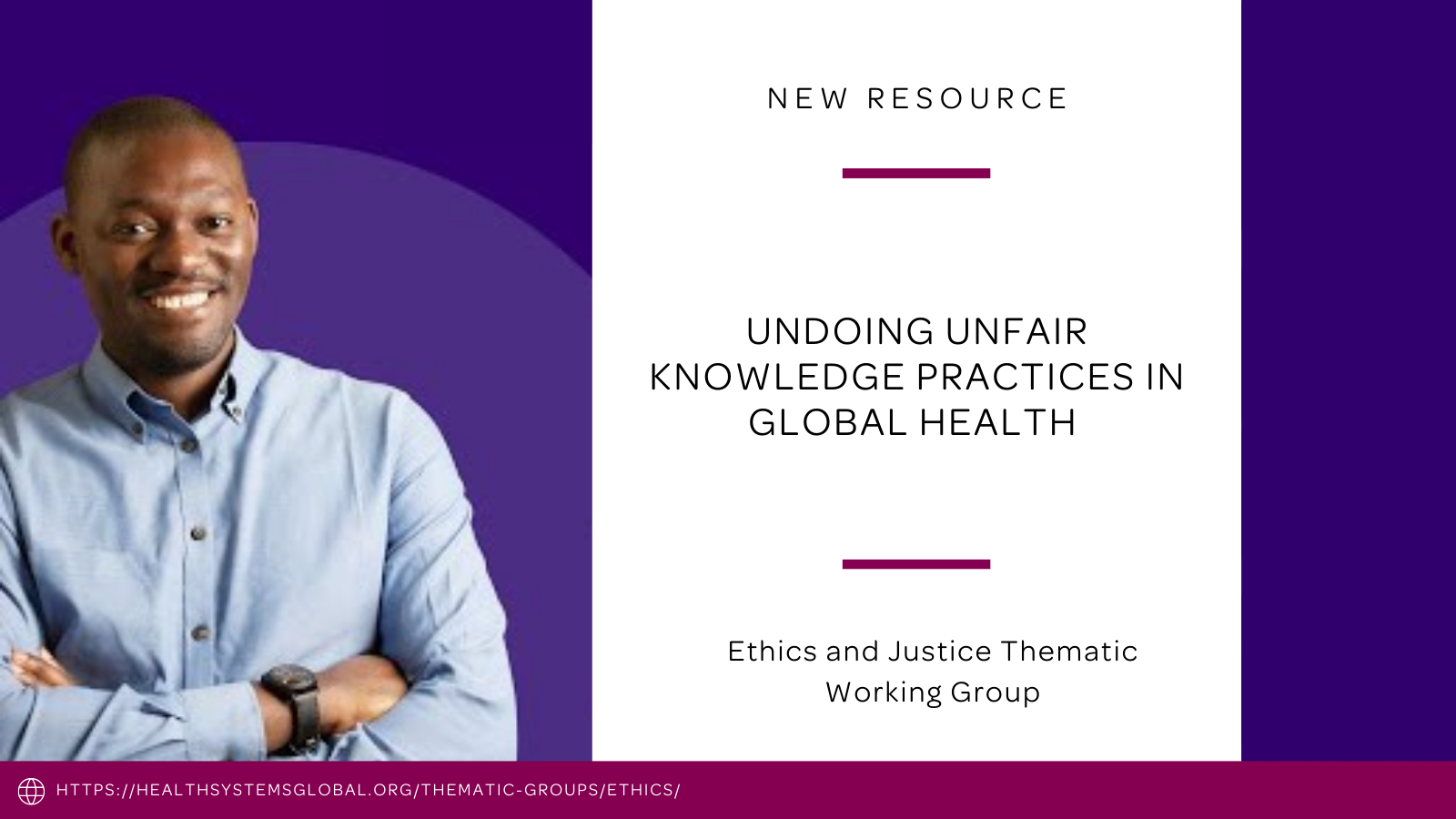
Undoing Unfair Knowledge Practices in Global Health
Hear from Seye Abimbola as he discusses undoing unfair knowledge practices in global health. Dr. Seye Abimbola is a health systems researcher from Nigeria. He is currently based at the University of Sydney in Australia, where he is an associate professor and principal research fellow. His teaching and research focus on knowledge practices in global […]

Using antioppressive teaching principles to transform a graduate global health course at Johns Hopkins University
Abstract Education systems and pedagogical practices in global public health are facing substantive calls for change during the current and ongoing ‘decolonising global health’ movement. Incorporating antioppressive principles into learning communities is one promising approach to decolonising global health education. We sought to transform a four-credit graduate-level global health course at the Johns Hopkins Bloomberg […]

Are we training our students to be white saviours in global health?
In 2012, the Nigerian-American writer and artist Teju Cole called out the culture of white saviourism in the USA and introduced the concept of the White Saviour Industrial Complex (WSIC). The make-up of global health education perpetuates and feeds into the WSIC, with universities in high-income countries (HICs) accounting for a major share of global […]

Non-White scientists appear on fewer editorial boards, spend more time under review, and receive fewer citations
Significance Empirical evidence suggests that non-White scientists experience various forms of inequality, creating barriers to their entry and participation in academic research. We contribute to this literature by examining disparities in i) editorial board representation, ii) time spent under review, and iii) citation rates. Using a dataset of 1,000,000 papers from six publishers over the […]

Disrespect in health care: An epistemic injustice
In this issue of the Journal of Health Services Research & Policy, Entwistle and colleagues address an urgent concern in our health care systems, namely that patients are sometimes treated with disrespect and that this disrespect is not sufficiently considered or addressed. They outline a number of important reasons for this deficit, including that respect is […]

Latin America at the margins? Implications of the geographic and epistemic narrowing of ‘global’ health
ABSTRACT To explore the narrowing of the concept of ‘global’ in global health, this article traces how Latin America has held a place of both privilege and power as well as marginalisation in the field. We employ a modified extended case method to examine how Latin America has been ‘seen’ and ‘heard’ in understandings of […]

How to address the geographical bias in academic publishing
The commitment by the global health community to promote equity in research, publishing and practice is a welcome addition to the discourse on decolonising global health. Bibliometric analysis of authorship and prime authorship positioning (first and last) has demonstrated that researchers from low-income and middle-income countries or the Global South are under-represented in academic publishing highlighting the need for […]

Barriers to Decolonizing Global Health: Identification of Research Challenges Facing Investigators Residing in Low- and Middle-Income Countries
The field of global health aims to leverage global partnerships to investigate issues transcending local boundaries. It acknowledges the importance of forming collaborative teams with diverse knowledge and experience to combat health disparities. However, in practice, global health is dominated by high-income countries (HICs). Most global health centers, global health conferences, and corresponding authors in global health […]

Global Health Expertise in the Shadow of Hegemony
What enables actors to shape norms in global health governance? Scholarship on global health has highlighted the role of experts and expertise in operationalizing norms across a variety of issues. The degree of expert consensus or dissensus and the negotiation processes between expert communities—for example, in international organizations, NGOs or academia—are commonly identified as centrally […]

The Rhetoric of Decolonizing Global Health Fails to Address the Reality of Settler Colonialism: Gaza as a Case in Point
This editorial critiques the existing literature on decolonizing global health, using the current assault on health in Gaza as a case in point. It argues that the failure to address the ongoing violence and blatant targeting of health facilities, personnel and innocent civilians demonstrates most clearly the limitations of an approach that is strong on […]

Exploring equity in global health collaborations: a qualitative study of donor and recipient power dynamics in Liberia
Abstract Introduction Global health collaborations between individuals from high-resource and low-resource settings are complex and often built on hierarchical structures and power differentials that are difficult to change. There have been many calls and frameworks developed to facilitate more equity within these collaborations, yet little is known about the lived experiences of global health donors […]

Editors as allies: Our two-year experience at PLOS Global Public Health
Two years ago, PLOS Global Public Health began publishing articles with a bold vision: The mission of PLOS Global Public Health is to address deeply entrenched inequities in global health and make impactful research visible and accessible to health professionals, policymakers, and local communities. We are committed to amplifying the voices of underrepresented and historically excluded communities and are […]

Decolonial framework for applying reflexivity and positionality in global health research
Abstract Contemporary research practices link to colonial and imperialist knowledge creation and production and may promote harmful perspectives on marginalized and oppressed groups. We present a framework for a decolonial approach to research in global health and health promotion applicable across research settings. This framework is aimed at anticipating and alleviating potentially harmful practices inherent […]

Missing in action: a scoping review of gender as the overlooked component in decolonial discourses
Introduction Race and gender were intimately intertwined aspects of the colonial project, used as key categories of hierarchisation within both colonial and modern societies. As such, true decolonisation is only possible when both are addressed equally; failure to address the colonial root causes of gender-based inequalities will allow for the perpetuation of racialised notions of […]

Will global health survive its decolonisation?
There are growing calls to decolonise global health. This process is only just beginning. But what would success look like? Will global health survive its decolonisation? This is a question that fills us with imagination. It is a question that makes us reflect on what Martin Luther King Jr saw when he said in 1968, […]

Shapeshifters: Global South scholars and their tensions in border-crossing to Global North journals
Introduction Global South researchers struggle to publish in Global North journals, including journals dedicated to research on health professions education (HPE). As a consequence, Western perspectives and values dominate the international academic landscape of HPE. This study sought to understand Global South researchers’ motivations and experiences of publishing in Global North journals. Methods This study used a […]

The Lancet and colonialism: past, present, and future
Summary The historical and contemporary alignment of medical and health journals with colonial practices needs elucidation. Colonialism, which sought to exploit colonised people and places, was justified by the prejudice that colonised people’s ways of knowing and being are inferior to those of the colonisers. Institutions for knowledge production and dissemination, including academic journals, were […]

The ethics of research into health and climate change: call for papers
Climate change is the greatest health threat facing humanity. The nature and scale of the interconnected impacts of climate change on health as well as the effectiveness of interventions to adapt to and mitigate climate change are currently the focus of research. Questions about which research should be given priority are critical, and ethical considerations […]

Three pathways to better recognize the expertise of Global South researchers
It is widely perceived how research institutes have been adopting the discourse of champions of diversity, inclusion, and equity (DEI) in recent years. Despite progress in diversity and inclusion in the academic environment, we highlight here that nothing or, at very best, little work has been done to overcome the scientific labor division in academic […]

Addressing social, environmental and ecological Justice in Health Policy and Systems Research
On 19 November 2024, at the Global Symposium on Health Systems Research, a critical session was held to address the complex intersections of social, environmental and ecological justice within Health Policy and Systems Research (HPSR). With experts from diverse fields, the discussion unpacked key concepts, shared dilemmas and explored actionable pathways to integrate justice in […]

Ethical perspectives on health systems and climate change
A summary of the Thematic Working Group webinar by Kate Hawkins of Pamoja Communications, ReBUILD for Resilience and Urban SHADE. Our session moderators, Sassy Molyneux and Karen Ceballos, opened the webinar by explaining that the time is right for this conversation as there are new ethical issues and concerns around equity and responsibility and tensions […]
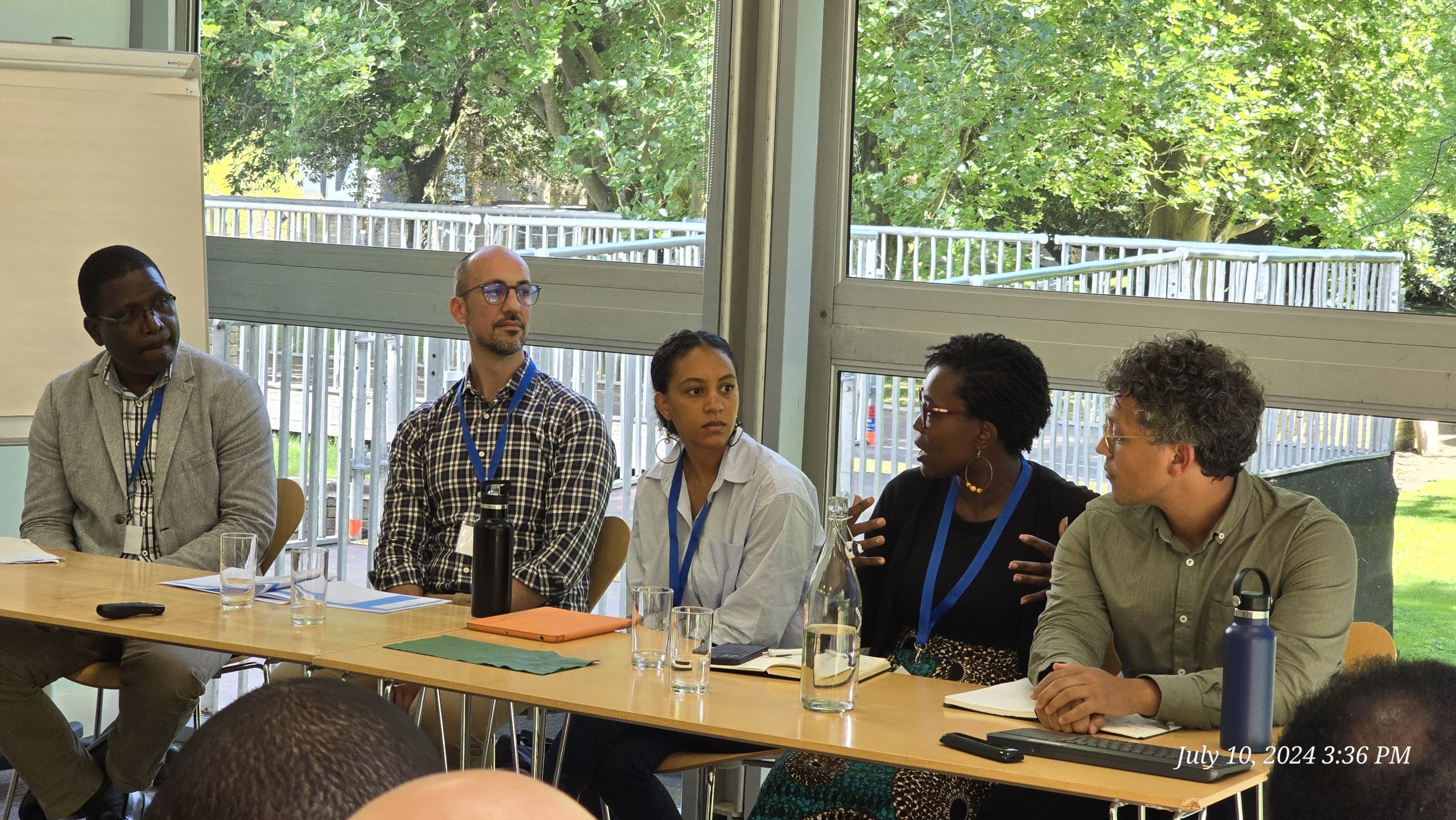
The “light” emerging from a “lightning session” at the 2024 Oxford Global Health and Bioethics International Conference
By Davide Bilardi and Nadia Tagoe The 2024 Oxford Global Health and Bioethics International Conference organisers dedicated a “lightning session” on ‘Towards a more Equitable Global Health’. Presenting at this session gave us a chance to reflect on some of our work linked to decolonisation and global health research. Some light indeed emerged for us […]

Health system resilience: a critical review and reconceptualisation
This Viewpoint brings together insights from health system experts working in a range of settings. Our focus is on examining the state of the resilience field, including current thinking on definitions, conceptualisation, critiques, measurement, and capabilities. We highlight the analytical value of resilience, but also its risks, which include neglect of equity and of who is bearing […]

ChatGPT and global public health: Applications, challenges, ethical considerations and mitigation strategies
Abstract The advancement of deep learning and artificial intelligence has resulted in the development of state-of-the-art language models, such as ChatGPT. This technology can analyze large amounts of data, identify patterns, and assist in the analysis and understanding of risk factors for diseases. Despite its potential, the applications, challenges, and ethical considerations have not been […]

Culturally responsive research ethics: How the socio-ethical norms of Arr-nar/Kreng-jai inform research participation at the Thai-Myanmar border
Abstract Despite advances, international research ethics guidelines still tend to consist of high-level ethical principles reflecting residual influence from North American and European traditions of ethics. Local ethics committees and community advisory boards can offer more culturally-sensitive approaches to training but most institutions lack substantive practical ethics guidance to engage rich moral understandings in day-to-day […]
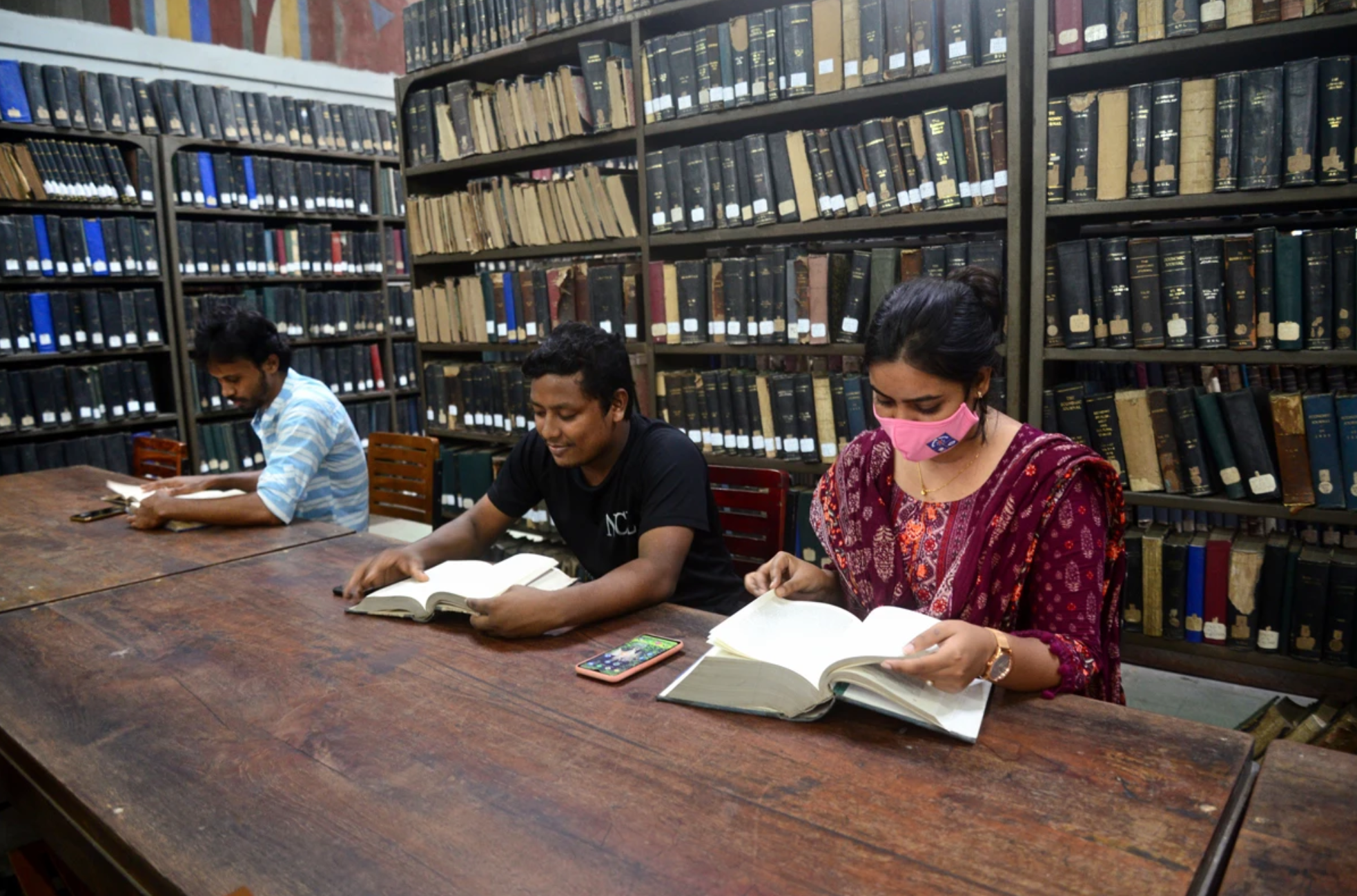
The Cape Town Statement on fairness, equity and diversity in research
The benefits of scientific collaboration are too often skewed towards wealthier countries. Bioethicists and others present guidance on how stakeholders such as researchers can change this. As awareness has grown about fraud and misconduct in science, the World Conferences on Research Integrity have become a leading forum for the discussion and study of ways to […]

What is a justice-oriented approach to global health?
Calls for justice-oriented approaches to global health gained momentum and visibility during COVID-19. For many years scholars and community leaders have been discussing and debating the ideas of health equity and social justice, but with the COVID-19 pandemic the social and health injustices suffered by millions around the world came into a sharp relief in […]

Knowledge from the global South is in the global South
In social systems or spaces, distance between the centre and the periphery breeds epistemic injustice. There are growing accounts of epistemic injustice in health-related fields, as in the article by Pratt and de Vries. The title of the article asks: ‘Where is knowledge from the global South?’ Like me, you may answer by saying: ‘Knowledge […]

Offline: The silencing of the South
League tables are addictive. From football to motorsport, tennis to golf, we relish following who is up and who is down. Understandably so, given that sport is fiercely competitive between individuals and teams. But universities? Provosts and Presidents of our greatest higher education institutions obsess over their rankings. Three dominate—the Times Higher Education (THE) World […]

Global Health’s Identity Crisis
Global Health’s Identity Crisis Lately, the field of global health–led by journals like the BMJ Global Health that often set the discourse–has opened itself up for introspection. Researchers and writers from around the world have been critiquing the field, its theory and praxis. As encouraging as this attempt at introspection and critique is, it runs the risk […]

Four approaches to supporting equitable research partnerships
Four approaches to supporting equitable research partnerships Transforming the global research partnership ecosystem in ways that increase equity and restore balance requires consistent action and reflection; the crux is finding a balance between flexibility and equity that enhances trust and respect among all partners. Drawing on the experience of funders, research organisations and researchers in […]
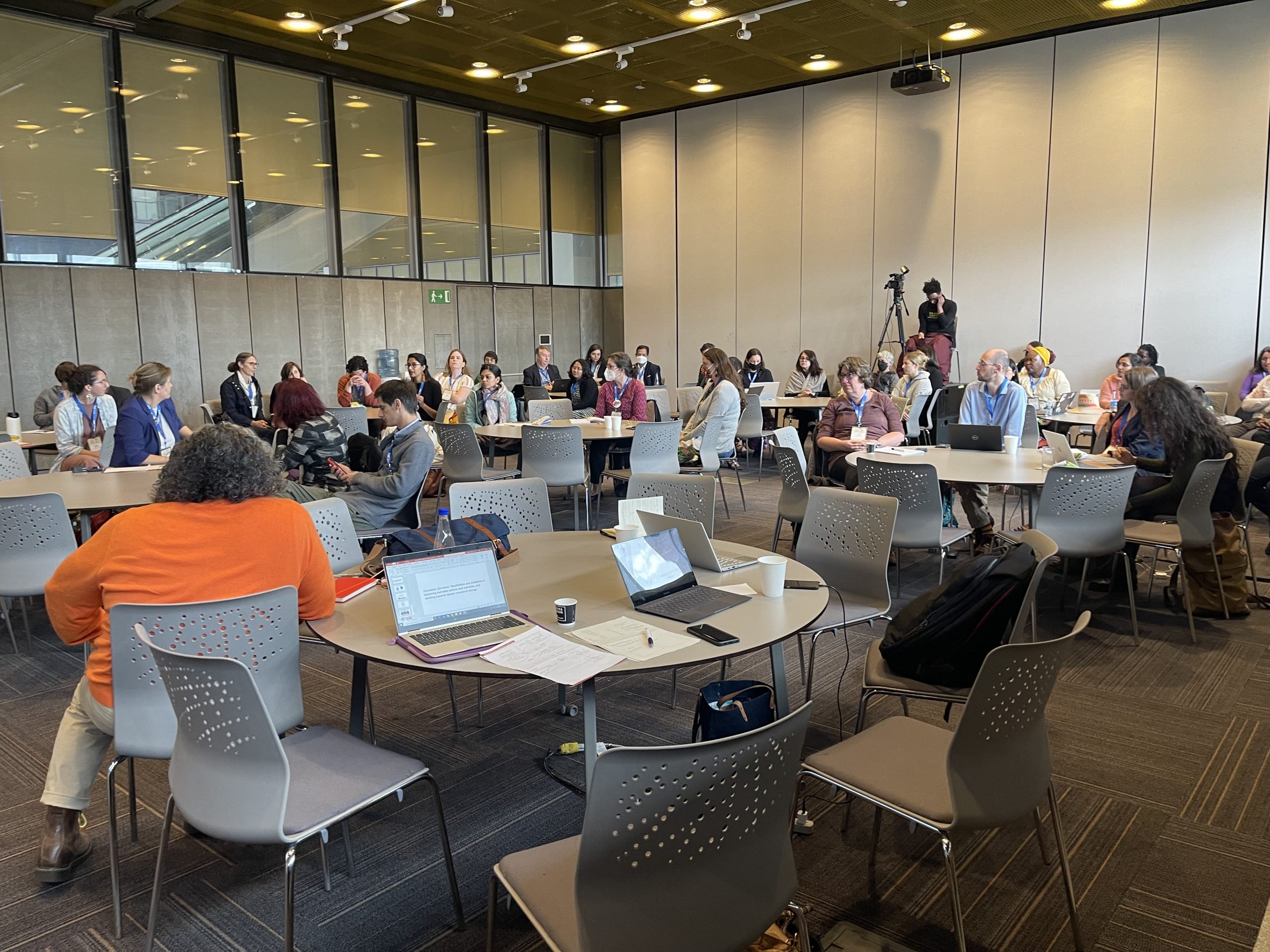
Justice concerns in HPSR and positive transformation
At the recent Global Symposium on Health Systems Research Sassy Molyneux and Seye Abimbola moderated a session organised by the Ethics and Justice Thematic Working Group. Nadia Tagoe, Kate Hawkins and Lynda Keeru report back. The session began with two recorded presentations by Bridget Pratt and Caesar Atuire on transforming HPSR from social justice and […]
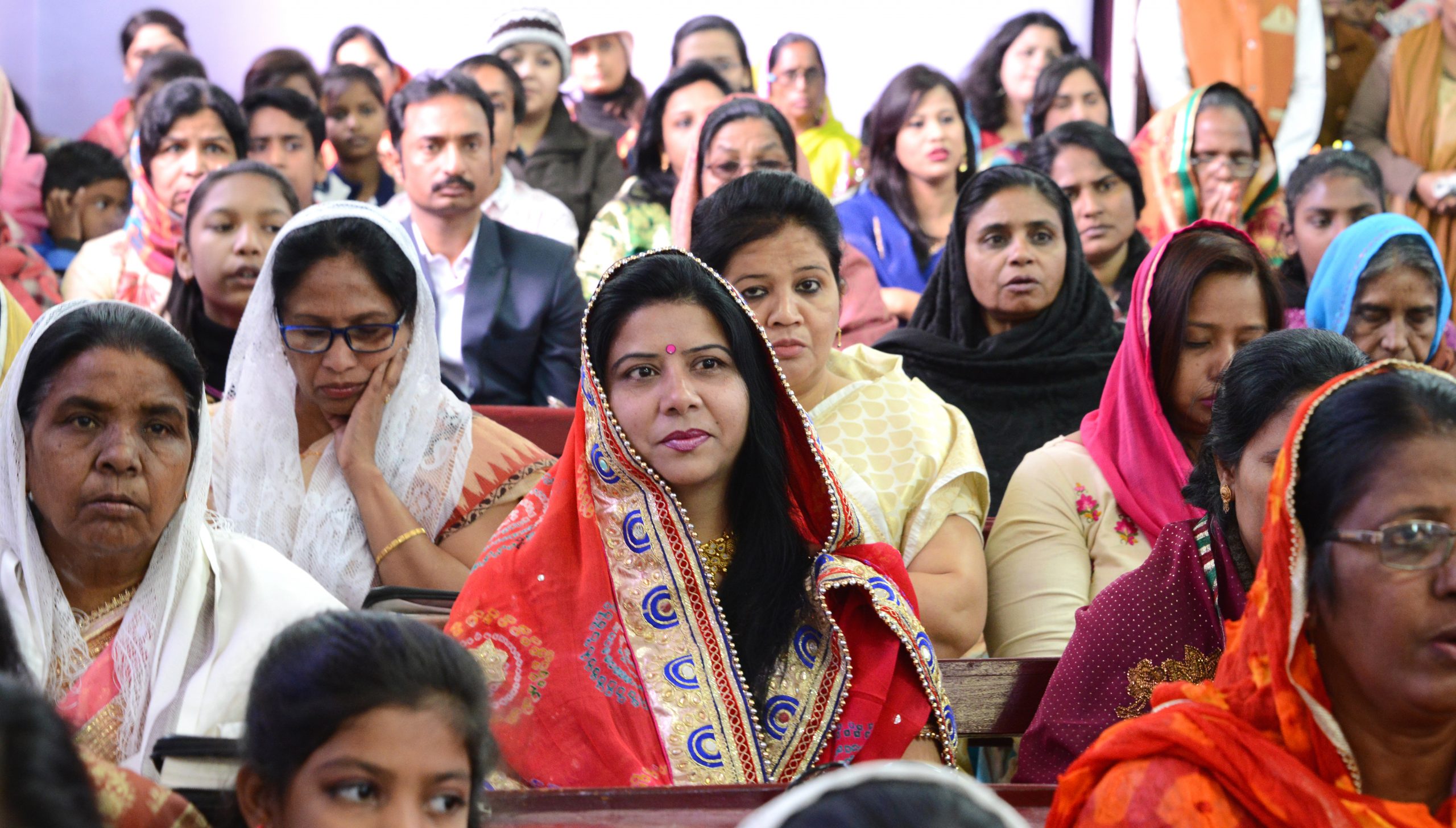
Overcoming structural barriers to sharing power with communities in global health research priority-setting: Lessons from the Participation for Local Action project in Karnataka, India
Abstract Community engagement is gaining prominence in global health research. But communities rarely have a say in the agendas or conduct of the very health research projects that aim to help them. This paper provides new evidence on how to share power in priority-setting in ways that seek to overcome structural constraints created by the […]

‘The Lancet’ journal rejects papers that don’t acknowledge African researchers
Respected global medical journal The Lancet will continue to reject papers with data from Africa that fail to acknowledge African collaborators, in the interest of building African research and of promoting integrity, equity and fairness in research collaboration, according to senior executive editor Sabine Kleinert. The journal made the decision after coming across manuscripts submitted by researchers […]
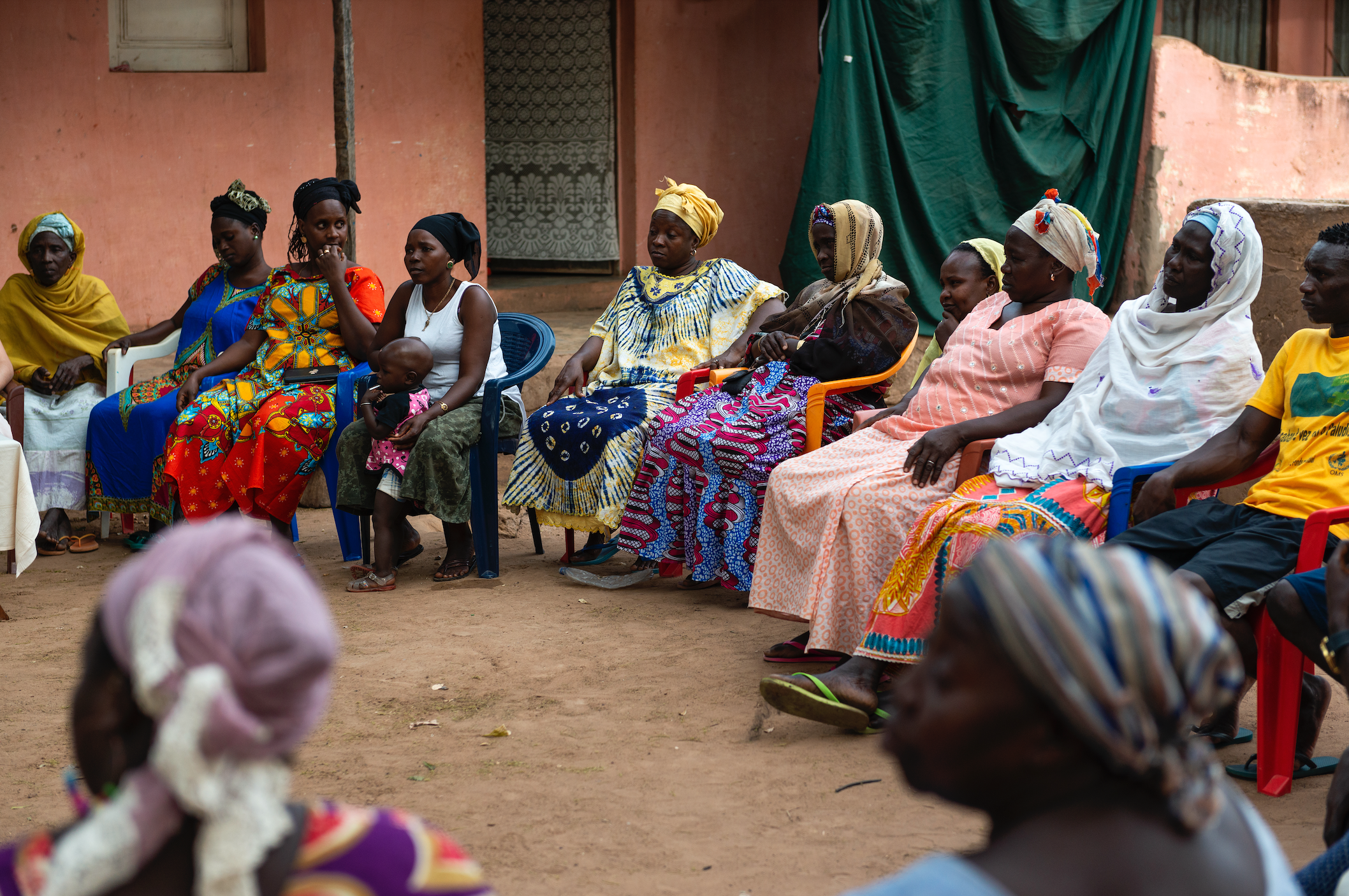
On an ethic of not going there
Fieldwork – “going there” – is the presumed norm and baseline of geographical research. In this commentary, I propose a framework for challenging the normative framing of fieldwork in geography and other fields (including those beyond academia): an ethic of not going there. I argue that fieldwork, rather than a neutral rite of passage, is deeply entwined […]
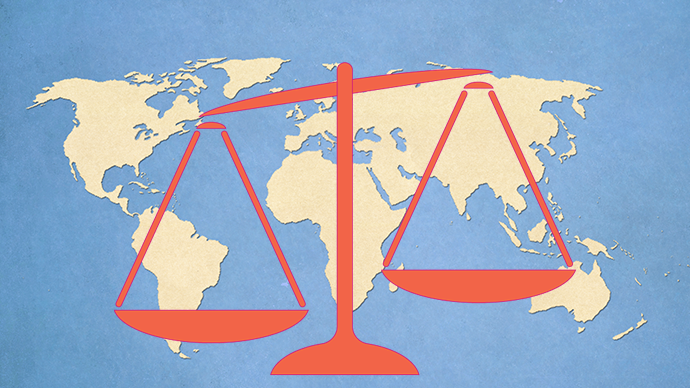
What counts? Knowledge and ideology in global health research
This piece was published on the Collective
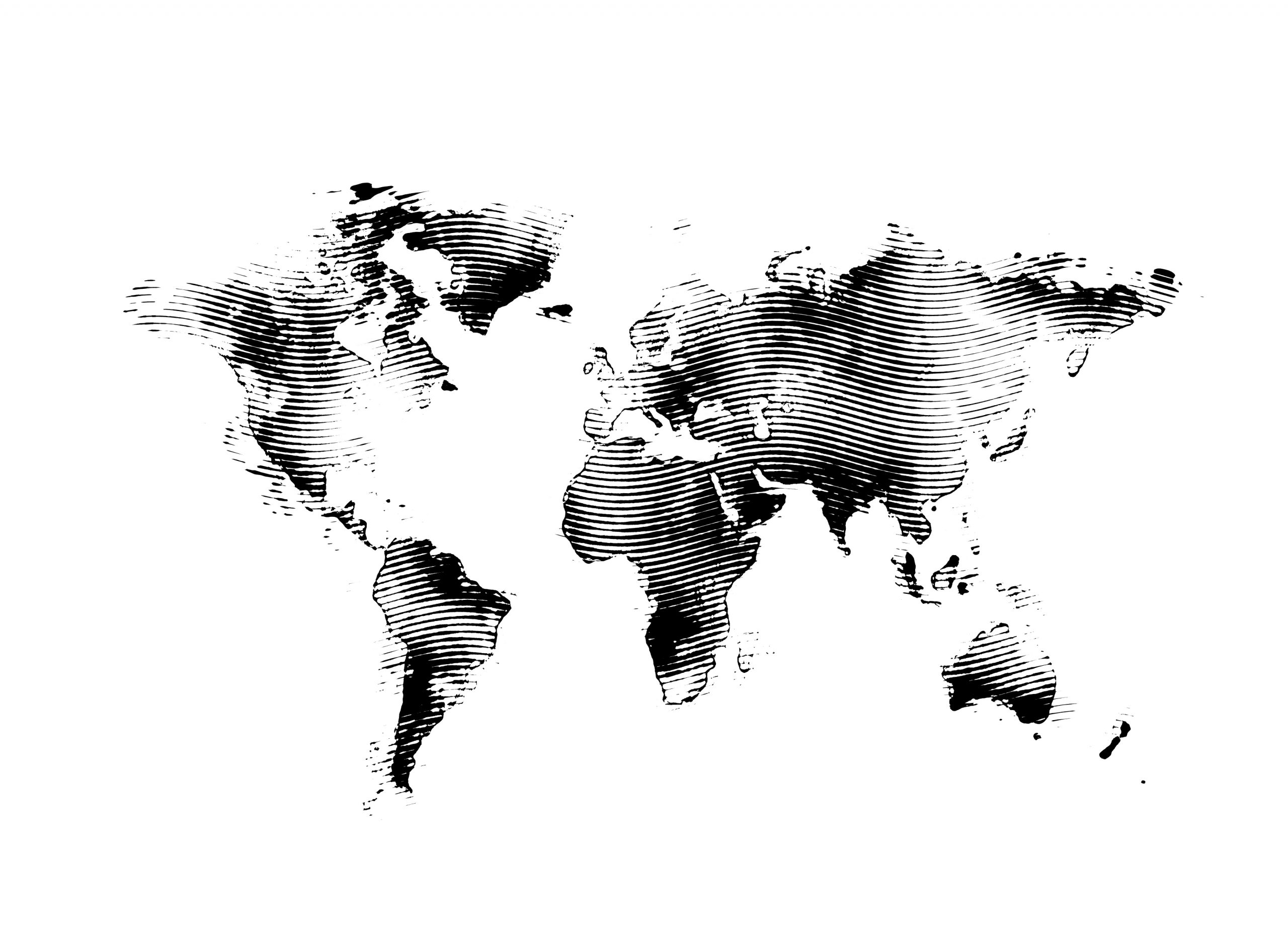
A Self-Reflexive Rebellion: Of Universality and False Empowerment of the Global South
Shaimaa Abdelkarim is a lecturer at Birmingham Law School. Farnush Ghadery is a Senior Lecturer in Law at London South Bank University. Jay Ramasubramanyam is an Assistant Professor in the Department of Social Science at York University, Toronto. Rohini Sen is a PhD candidate at Warwick School of Law and an Assistant Professor at the […]

Nature addresses helicopter research and ethics dumping
New framework aims to improve inclusion and ethics in global research collaborations amid wider efforts to end exploitative practices. Exploitative research practices, sadly, come in all shapes and sizes. ‘Helicopter research’ occurs when researchers from high-income settings, or who are otherwise privileged, conduct studies in lower-income settings or with groups who are historically marginalized, with […]

The Equity Tool for Valuing Global Health Partnerships
Abstract Global health partnerships (GHPs) involve complex relationships between individuals and organizations, often joining partners from high-income and low- or middle-income countries around work that is carried out in the latter. Therefore, GHPs are situated in the context of global inequities and their underlying sociopolitical and historical causes, such as colonization. Equity is a core […]

The rise of citational justice: how scholars are making references fairer
An emerging movement aims to push researchers to pay more heed to inequities in scholarly citations. Christen Smith was at a conference in October 2017 when she felt a familiar jolt of frustration. A presenter showed a slide with passages that had been paraphrased from one of her books — and, to her dismay, had […]

Disrupting Global Health: From Allyship To Collective Liberation
Global health is a field that was born out of colonialism and white supremacy. Even today, it is neither diverse nor truly global. Every aspect of global health is dominated by individuals and institutions in high-income countries (HIC). This includes funding, authorship of publications, leadership of agencies, composition of boards, editorial positions, awards, and even participation in conferences. […]

‘You want to deal with power while riding on power’: global perspectives on power in participatory health research and co-production approaches
Abstract Introduction Power relations permeate research partnerships and compromise the ability of participatory research approaches to bring about transformational and sustainable change. This study aimed to explore how participatory health researchers engaged in co-production research perceive and experience ‘power’, and how it is discussed and addressed within the context of research partnerships. Methods Five online workshops were […]

A call to action to reform academic global health partnerships
The global health enterprise has contributed to improving the wellbeing of people and increasing access to health services. However, deep structural inequities persist between institutions from high-income countries (HICs) and those in low and middle-income countries (LMICs) in access to resources, training, and knowledge. This results in significant health inequities, lack of ownership, lost opportunities, […]
Using scientific authorship criteria as a tool for equitable inclusion in global health research
Introduction In 1985, the International Committee of Medical Journal Editors (ICMJE) created a standardised set of criteria for authorship. The central principle underlying these criteria is that authorship is an intellectual activity that entails contributions to ideas (eg, conceptualising a study and framing the research question), analyses (eg, formulating the analysis approach/framework and/or performing the actual […]

Letter to the Editor: Honorary Authorships in Surgical Literature
Letter to the Editor: Honorary Authorships in Surgical Literature In response to the article by JD Luiten and co-authors (WJS, March 2019) reporting their findings on continuing usage of honorary authorship, this letter seeks to highlight the complexity of conducting research in low- and middle-income countries (LMICs) and to encourage inclusiveness and meaningful recognition of […]
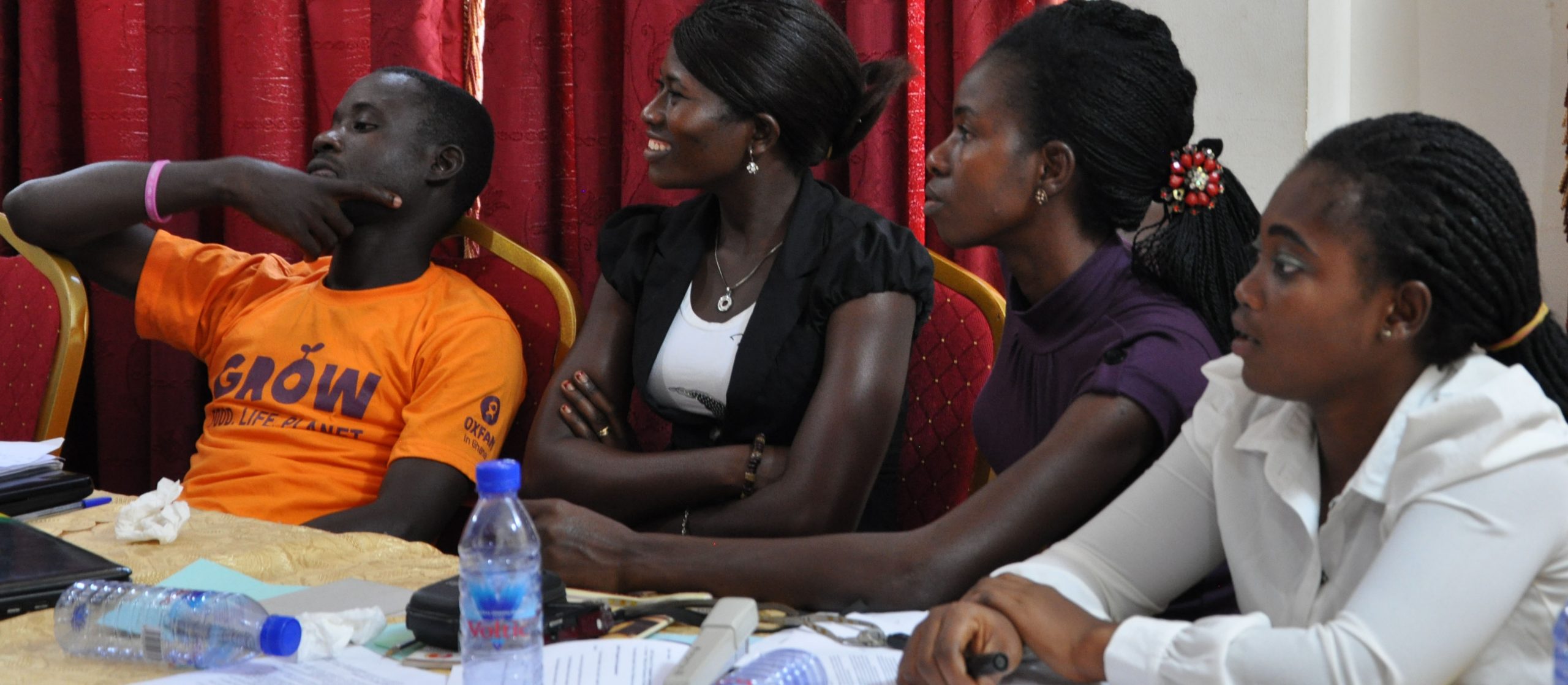
Where there is no local author: a network bibliometric analysis of authorship parasitism among research conducted in sub-Saharan Africa
Abstract Introduction Authorship parasitism (ie, no authors affiliated with the country in which the study took place) occurs frequently in research conducted in low-income and middle-income countries, despite published recommendations defining authorship criteria. The objective was to compare characteristics of articles exhibiting authorship parasitism in sub-Saharan Africa to articles with author representation from sub-Saharan African countries. […]
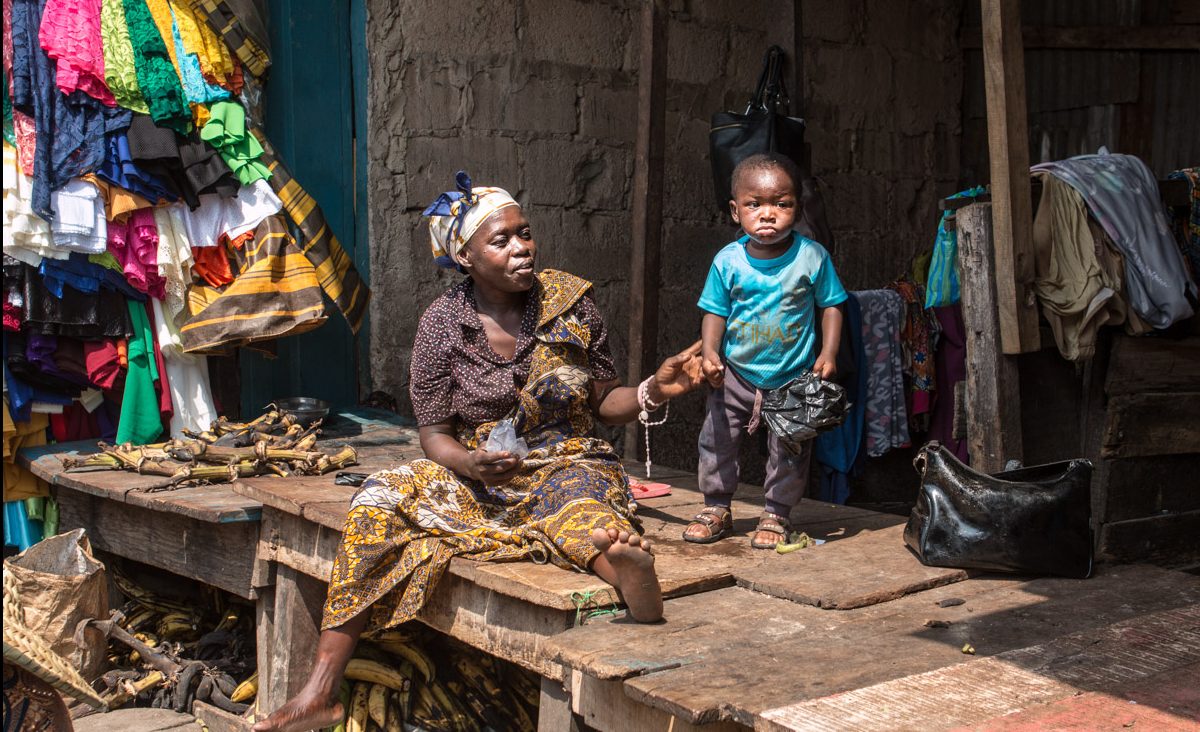
Africa is not a museum: the ethics of encouraging new parenting practices in rural communities in low-income and middle-income countries
The Nurturing Care Framework for Early Childhood Development urges stakeholders to implement strategies that help children worldwide achieve their developmental potential. Related programmes range from the WHO’s and UNICEF’s Care for Child Development intervention, implemented in 19 countries, to locally developed programmes, such as non-governmental organisation Tostan’s Reinforcement of Parental Practices in Senegal. However, some […]

Transcending global health dogma: an Indigenous perspective
Current perspectives on global health are largely determined and advocated for by people or institutions in Europe or in the USA. Those determining the questions are not diverse, which results in hegemonic solutions for the entire world. Sometimes, on the basis of the arbitrary and problematic comparative category of income alone, a single generalised solution is recommended […]
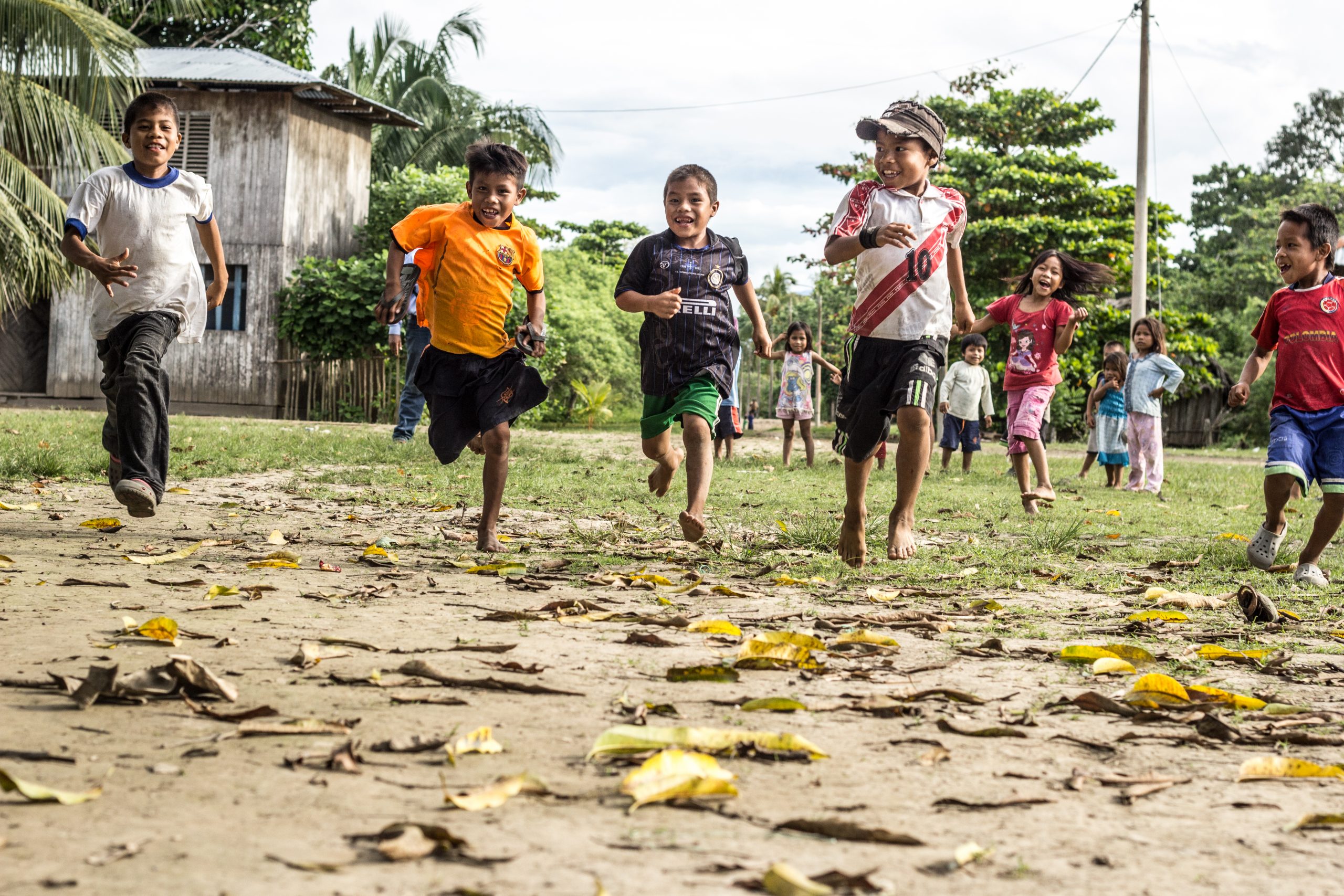
Thinking outside the modern capitalist logic: health-care systems based in other world views
Latin America is home to about 800 different Indigenous Peoples and Nationalities, the equivalent to 9·8% of its population. The average infant mortality rate in Indigenous children is 60% higher than that in non-Indigenous children. In 2018, Ecuador reported that 50·6% of its Indigenous population lived in poverty, compared with 20·9% of the non-Indigenous population. Between […]
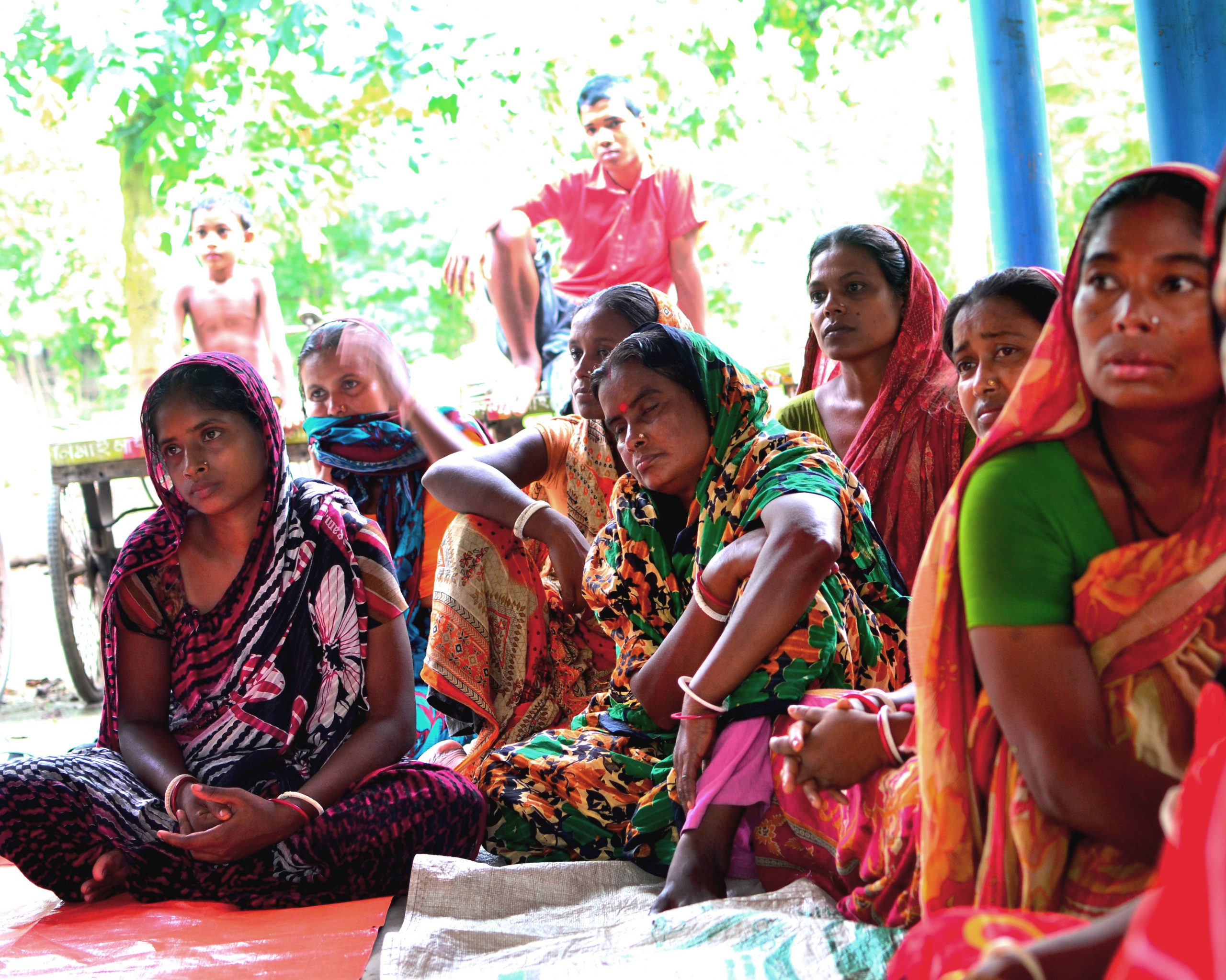
Ethical dimensions of community engagement and involvement in global health research
The NIHR global health research portfolio held a webinar for applicants about ethical dimensions of community engagement and involvement in global health research, in partnership with the Institute of Development Studies. The the speakers for this session are: Dr Bridget Pratt, Senior Research Fellow in the School of Population and Global Health at the University of […]

North-South Power Differentials and Competition in the Research Business
North-South Power Differentials and Competition in the Research Business Collaborative research is committed to a division of labour. To summarise, two different blocks emerge from the power relationships that characterise the production of knowledge. The first block includes (i) the “donor” who provides the research funding and determines the conditions on how to get access […]
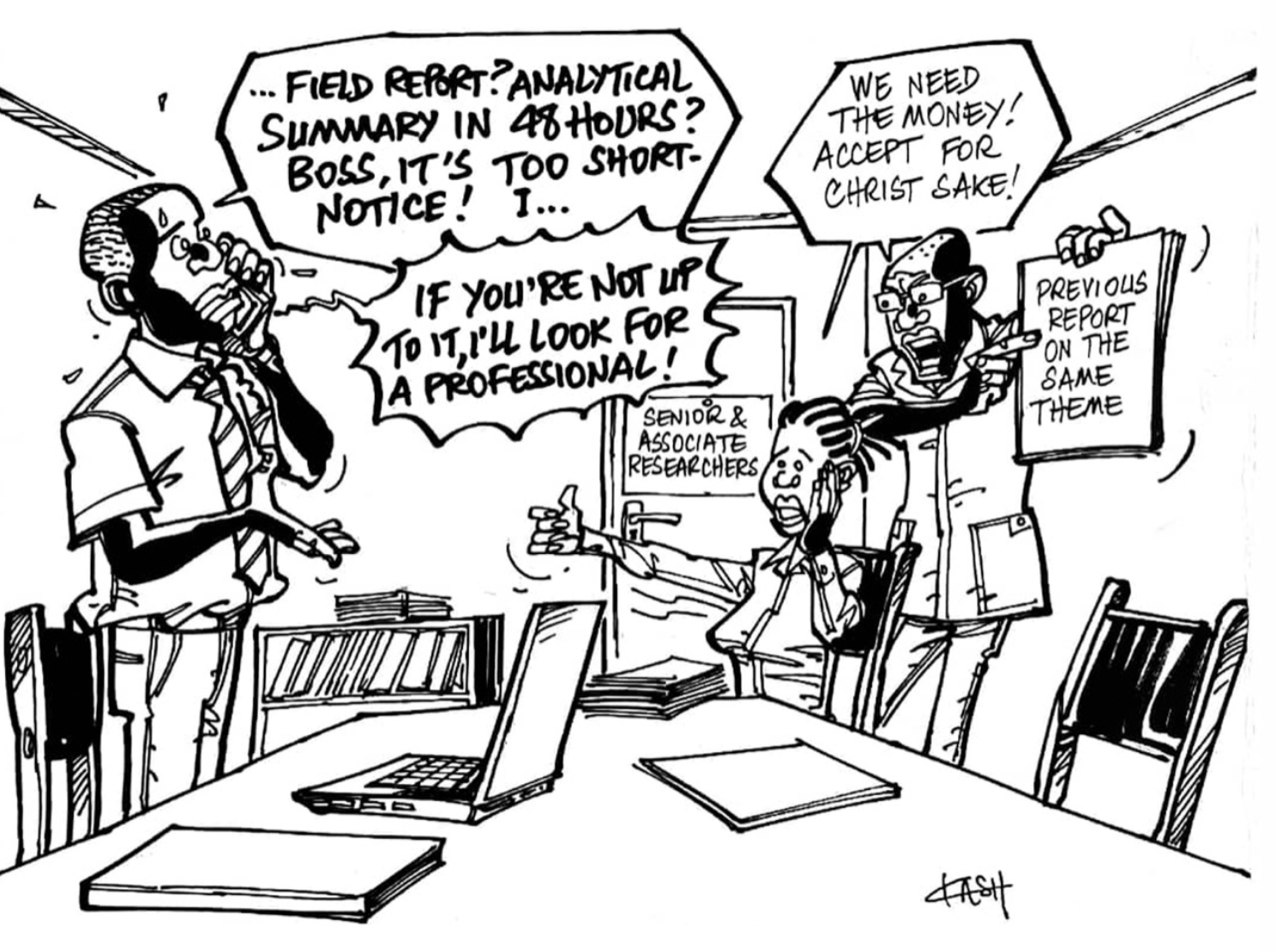
Remunerating Researchers from the Global South: A Source of Academic Prostitution?
Remunerating Researchers from the Global South: A Source of Academic Prostitution? While researchers from the Global North are granted a guaranteed salary, risk funds, and various forms of insurance, the same cannot be said for research assistants. The remunerative discrepancy between these two groups is a form of discrimination. It creates an imbalance between researchers […]
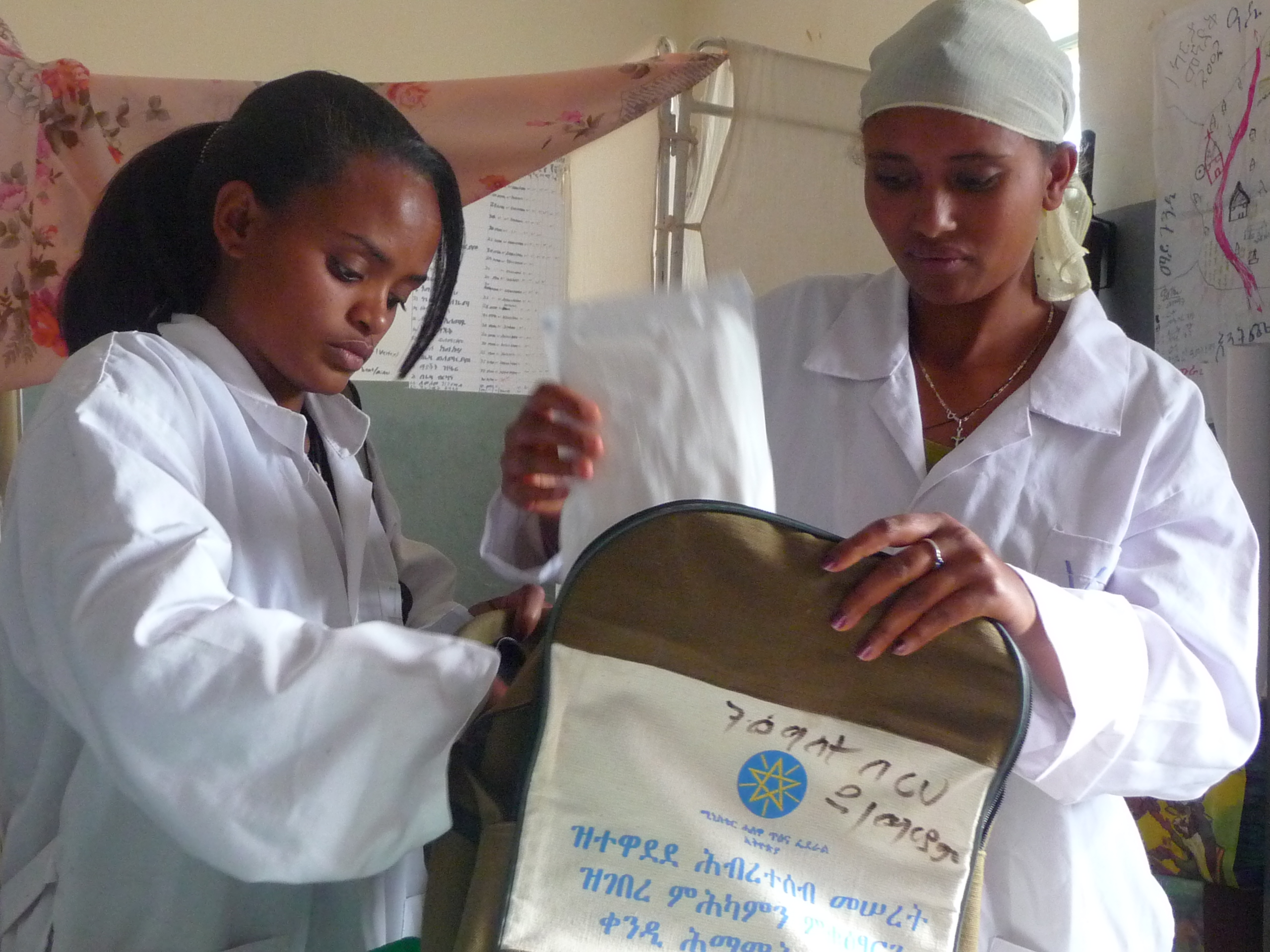
What is wrong with global health? So-called glorified data collectors in low-income regions
In a conversation with a friend (a well qualified epidemiologist, who trained at one of the top institutions in the world and is currently based at an institution in Africa), he acknowledged the power imbalances present in global health, describing his position of local research coordinator as a so-called glorified data collector. Through a deep […]
‘Labouring’ on the frontlines of global health research: mapping challenges experienced by frontline workers in Africa and Asia
ABSTRACT Drawing on the reflections and discussions from a special session at the 2021 Global Health Bioethics Network summer school, this paper has summarised the key challenges faced by Frontline Workers (FWs) across research sites in Africa and Asia in performing the everyday ‘body work’ entailed in operationalising global health research. Using a ‘body work’ […]
Dialogical reflexivity towards collective action to transform global health
The COVID-19 pandemic has shone a spotlight on existing systemic inequities, both in terms of health inequity and broader socio-economic inequities.1 There have been calls globally not just to build back better but to do so in a way that dismantles structural inequities. Abimbola et al have outlined facets of supremacy, encompassing coloniality, patriarchy, racism, white supremacy and saviourism, […]
What role can health policy and systems research play in supporting responses to COVID-19 that strengthen socially just health systems?
To say that we live in turbulent times is a massive understatement. COVID-19 ruthlessly exposes the fault lines of health services and systems, and the responses put in place to prevent its spread or mitigate its effects may affect people more than the actual infection. The outbreak in Wuhan quickly grew to a pandemic that […]

Model for developing context-sensitive responses to vulnerability in research: managing ethical dilemmas faced by frontline research staff in Kenya
Health research in low-resource settings often involves individuals and populations defined as ‘vulnerable’. There is growing attention in the literature to the ethical dilemmas that frontline research staff face while conducting such research. However, there is little documented as to how research staff might support one another in identifying and handling these dilemmas in different […]
Addressing power asymmetries in global health: Imperatives in the wake of the COVID-19 pandemic
The Coronavirus Disease 2019 (COVID-19) pandemic, the Black Lives Matter and Women in Global Health movements, and ongoing calls to decolonise global health have all created space for uncomfortable but important conversations that reveal serious asymmetries of power and privilege that permeate all aspects of global health.In this article, we, a diverse, gender-balanced group of […]
Whose voices should shape global health education? Curriculum codesign and codelivery by people with direct expertise and lived experience
There are contrasting opinions of what global health (GH) curricula should contain and limited discussion on whose voices should shape it. In GH education, those with first-hand expertise of living and working in the contexts discussed in GH classrooms are often absent when designing curricula. To address this, we developed a new model of curriculum […]
Research for Health Justice: an ethical framework linking global health research to health equity
Global health research should generate new knowledge to improve the health and well-being of those considered disadvantaged and marginalised. This goal motivates much of the global health research being undertaken today. Yet simply funding and conducting global health research will not necessarily generate the knowledge needed to help reduce health disparities between and within countries. […]
A systematic review on ethical challenges of ‘field’ research in low-income and middle-income countries: respect, justice and beneficence for research staff?
Primary data collection in low-income and middle-income countries (LMICs) is associated with a range of ethical complexities. Considerations on how to adequately ensure the well-being of research staff are largely neglected in contemporary ethics discourse. This systematic review aims to identify the ethical challenges that research staff across different hierarchical levels and scientific disciplines face […]
Sharing power in global health research: an ethical toolkit for designing priority-setting processes that meaningfully include communities
To promote social justice and equity, global health research should meaningfully engage communities throughout projects: from setting agendas onwards. But communities, especially those that are considered disadvantaged or marginalised, rarely have a say in the priorities of the research projects that aim to help them. So far, there remains limited ethical guidance and resources on how […]
An African Reading of the COVID-19 Pandemic and the Stakes of Decolonization
The COVID-19 pandemic has so far revealed that the virus (SARS-CoV-2) does not only infect, weaken, and highlight weaknesses in human biological systems, but also the structural weaknesses of health systems at international and national levels. In this paper we examine the COVID-19 pandemic in Africa through a decolonization lens. Keeping in mind that there are […]
Ethics of Global Health Photography: A Focus on Being More Human
This article explores the relationship between ethics and the production of global health photographic images. Through the text, we emphasize the need for greater awareness of potential ethical pitfalls, not just in relationship to the finished product of the image but also throughout the full photographic process. In order to do so, we present and […]
Justice: a key consideration in health policy and systems research ethics
Health policy and systems research (HPSR) is increasingly being funded and conducted worldwide. There are currently no specific guidelines or criteria for the ethical review and conduct of HPSR. Academic debates on HPSR ethics in the scholarly literature can inform the development of guidelines. Yet there is a deficiency of academic bioethics work relating to justice in […]
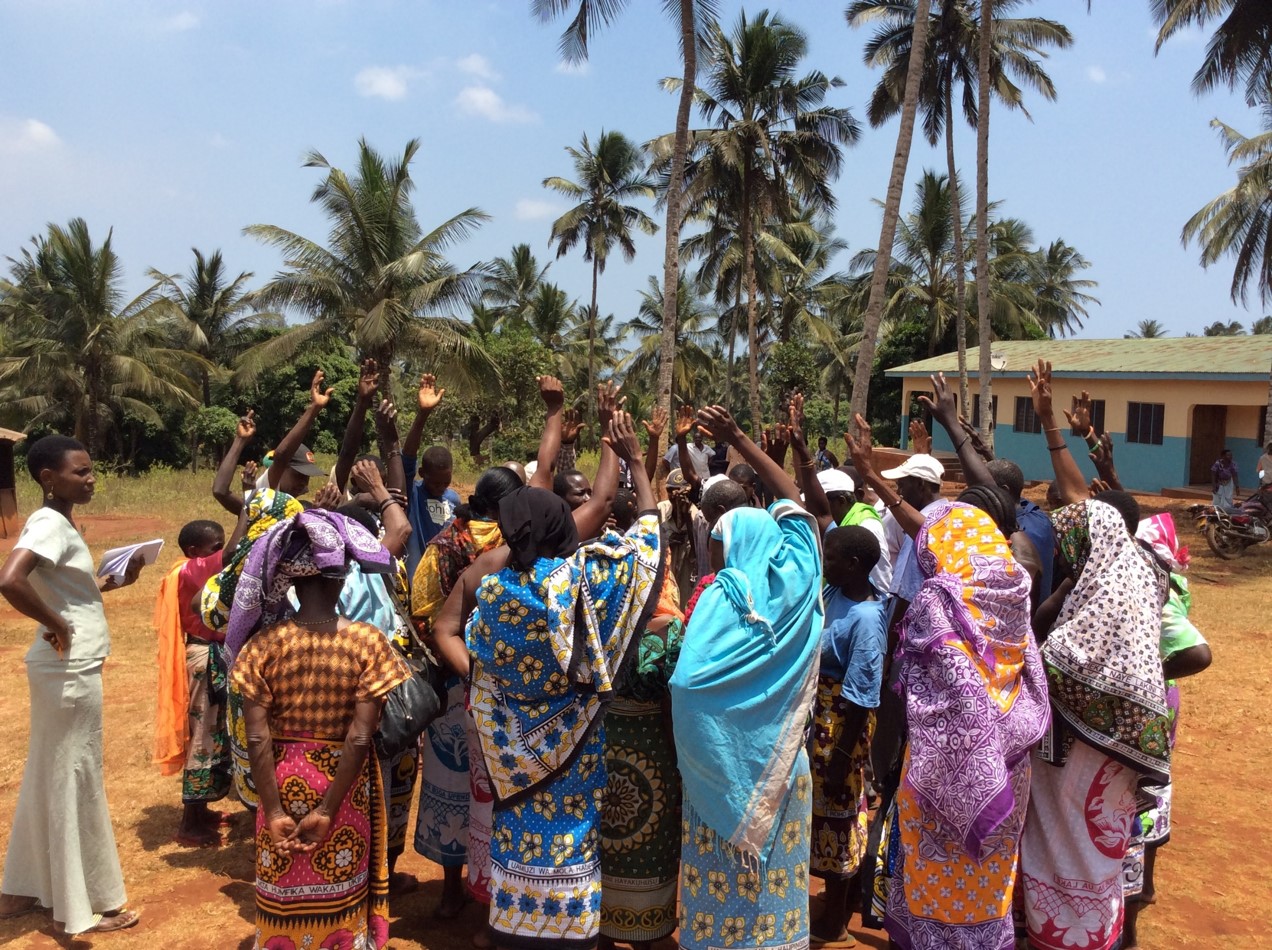
Working with Community Advisory Boards/Groups to support community engagement in clinical research on COVID-19
Community Advisory Boards and Groups COVID 19 There is wide agreement that community engagement (CE) is important to strengthen collaborativepartnerships and ethical practice across many research types and settings, often including interaction with ‘representatives’ of communities. Community Advisory Boards/Groups (CAB/Gs), or variants of these, are the most widely documented structures supporting CE. Here we share […]
Open-access publishing fees deter researchers in the global south
Read the original article here Authors in low-income countries rarely published free-to-read papers, even when they qualified for publication-fee waivers. Open-access papers have drastically fewer lead authors from low-income regions than do paywalled articles, an analysis of tens of thousands of articles shows. The findings suggest that the fees that journals charge to publish articles […]
Learning health systems: an empowering agenda for low-income and middle-income countries
Institutions in high-income countries (HICs) are the main funders and generators of academic knowledge on health systems in low-income and middle-income countries (LMICs), and much too often this knowledge reflects their priorities rather than the needs of health systems in LMICs. This power imbalance between HICs and LMICs has been the focus of calls for reforms […]
Special Section on Global Health Fieldwork Ethics and Human Rights
In April 2018, a group of 29 global health researchers and practitioners from various disciplines, institutions, and career phases—from students to CEOs—came together for the Workshop on Ethically Managing Global Health Fieldwork Risks held at Agnes Scott College in Decatur, Georgia, USA. All the participants had worked in global health, and experienced situations in the […]
Ethical Considerations for Disseminating Research Findings on Gender-Based Violence, Armed Conflict, and Mental Health: A Case Study from Rural Uganda
Gender-based violence (GBV) is a major public health problem that is exacerbated in armed conflict settings. While specialized guidelines exist for conducting research with GBV, guidance on disseminating findings from GBV research is scant. This paper describes ethical considerations of designing and disseminating research findings on GBV, armed conflict, and mental health (including alcohol misuse) […]
Snap shots from a photo competition: what does it reveal about close-to-community providers, gender and power in health systems?
In this commentary, we discuss a photography competition, launched during the summer of 2014, to explore the everyday stories of how gender plays out within health systems around the world. While no submission fees were charged nor financial awards involved, the winning entries were exhibited at the Global Symposium on Health Systems Research in Cape […]
Data management and sharing policy: the first step towards promoting data sharing
Health-related research funders, regulators and journals expect that de-identified individual-level health data be shared widely, with as few restrictions as possible; yet, in reality, the volume of shared data remains low. Health researchers and other data producers are reluctant to share their data unless they are confident that their datasets are of high quality and […]
Training course on ethics in implementation research
TDR and WHO’s Global Health Ethics team have jointly developed a training course for researchers and research ethics committees on the important ethical considerations in implementation research (IR). The course comprises six interactive modules interspersed with activities including case studies, role-play and quizzes: Module 1: Introduction to IRModule 2: Ethical considerations in IRModule 3: Ethical […]
The activists trying to ‘decolonize’ global health
While the idea of decolonizing global health has gained prominence recently, it is not new. Discussions about the impact of the colonial legacy on health systems began with the end of the colonial system. A discussion among academics, activists, health practitioners, and others, that is taking on new urgency, as actors look to identify and […]
Decentering power in Health Policy and Systems Research: theorising from the margins
The field of Health Policy System Research (HPSR) offers us valuable theorisations and empirical work to guide us on how we can engage with the complex social, economic and political nature of health systems today. However, the field has not been able to fully grapple with the blind spots that are ever present in our reality. […]
10 Fixes for Global Health Consulting Malpractice
This problem of consulting malpractice is merely one facet of a larger issue of how global health, even today, is still colonial in many ways, and how high-income country experts and institutions are valued much more than expertise in low- and middle-income countries. This article makes suggestions on how global health consulting can be decolonised. Pai M (2019) 10 […]
Action to protect the independence and integrity of global health research
In a Viewpoint in the Lancet, experiences of censorship in donor-funded evaluation research were shared. The authors warned about a potential trend in which donors and their implementing partners use ethical and methodological arguments to undermine research. Reactions to the Viewpoint—and lively debate at the 2018 Global Symposium on Health Systems Research—suggest that similar experiences are common in implementation […]
Closing the door on parachutes and parasites
No one likes a parachute researcher: the one who drops into a country, makes use of the local infrastructure, personnel, and patients, and then goes home and writes an academic paper for a prestigious journal. This Lancet article suggests some ways in which this can be avoided and some of the ethical issues associated with […]
The foreign gaze: authorship in academic global health
This editorial is based on the author’s experiences as a journal editor, and an academic who has been a local researcher and a foreign researcher. It is also based on a constructed ‘ideal’ of how things might have been without global health research partnerships, and when (circa late 19th to mid-20th century) many of the countries […]
The problem of ‘trickle-down science’ from the Global North to the Global South
Countries in the Global South continue to struggle to train and retain good researchers and practitioners to address local, regional and global health challenges. As a result, there is an ongoing reliance on the Global North for solutions to local problems and an inability to develop alternative approaches to problem solving that take local (non-northern) […]
Structural Injustice Power, Advantage, and Human Rights
In this book Madison Powers and Ruth Faden develop an innovative theory of structural injustice that links human rights norms and fairness norms. Norms of both kinds are grounded in an account of well-being. Their well-being account provides the foundation for human rights, explains the depth of unfairness of systematic patterns of disadvantage, and locates […]
Equity, challenge studies and community engagement in bioethics?
Community engagement is gaining prominence in global health research. Growing consensus about the importance of community representation and participation for ethical research means research institutions and funding bodies now promote, or even mandate, engagement with communities as an important component of “traditional” non-participatory health research projects. In practice, however, global health research priority-setting is dominated […]
How can we do a better job of setting research agendas with communities?
Community engagement is gaining prominence in global health research. Growing consensus about the importance of community representation and participation for ethical research means research institutions and funding bodies now promote, or even mandate, engagement with communities as an important component of “traditional” non-participatory health research projects. In practice, however, global health research priority-setting is dominated […]
‘I’m Not that Kind of Doctor’ On Being In-Between in a Global Health Intervention
Within multi-disciplinary global health interventions, anthropologists find themselves navigating complex relationships of power. In this article, I off er a critical reflection on this negotiated terrain, drawing on my experience as an embedded ethnographer in a four-year adolescent sexual and reproductive health research intervention in Latin America. I critique the notion that the transformative potential […]
Ethical considerations for health policy and systems research
To promote social justice and equity, global health research should meaningfully engage communities throughout projects: from setting agendas onwards. But communities, especially those that are considered disadvantaged or marginalised, rarely have a say in the priorities of the research projects that aim to help them. So far, there remains limited ethical guidance and resources on how […]
Navigating ‘ethics in practice’: An ethnographic case study with young women living with HIV in Zambia
While ‘procedural ethics’ provides essential frameworks for governing global health research, reflecting on ‘ethics in practice’ offers important insights into addressing ethically important moments that arise in everyday research. Particularly for ethnographic research, renowned for it’s fluid and spontaneous nature, engaging with ‘ethics in practice’ has the potential to enhance research practice within global health. […]
Strengthening health systems through embedded research
We argue that embedding of research in real world policy, practice and implementation is needed to strengthen health systems worldwide. Embedded research conducted in partnership with policymakers and implementers, integrated in different health system settings and that takes into account context-specific factors can ensure greater relevance in policy priority-setting and decision-making. Ghaffar A., Langlois E.V. […]
A time for global health ethics
In this blog Benatar argues that a shift in attention from individual health to population health requires new ways of thinking inclusive of our interactions with the biosphere and planetary sustainability. He suggests that, “current global crises include the instability of a fraudulent global economic system; wide disparities in health, disease burdens, human well-being and suffering; […]
“Not Everything That Is Faced Can Be Changed, but Nothing Can Be Changed Until It Is Faced”: A Response to Recent Commentaries
Given the unsatisfactory and unpredictable nature of progress, and the critical state of the world, ongoing consideration of alternative possibilities for better social systems continues. ‘Imperial common sense’ should be challenged and widespread support generated for use of our capacity to do better for global/planetary health through ‘rethinking the traditional bureaucratic model of postwar intergovernmental […]
How being appreciative creates change – theory in practice from health and social care in Scotland
This paper develops understanding of appreciative action research that generates curiosity and motivation as a better platform for collaborative change. Blending theory and practice it draws on the example of the My Home Life leadership programme in Scotland that explores the concepts and approaches of ‘Caring Conversations’ and ‘playful provocation’ in care homes for older people. The […]
Webinar: The ethics of health systems research
In this film members of the Thematic Working Group in Health Systems Research reflect on some of the potentially distinct and unique challenges that are faced by health systems researchers. For example: There are a variety of methods and measures in health systems research – it is a diverse field. These research ‘interventions’ need to be […]
10 best resources on power in health policy and systems in low- and middle-income countries
Power is a critical concept to understand and transform health policy and systems. Power manifests implicitly or explicitly at multiple levels—local, national and global—and is present at each actor interface, therefore shaping all actions, processes and outcomes. Analysing and engaging with power has important potential for improving our understanding of the underlying causes of inequity, […]
Vulnerability in research ethics: a way forward
Several foundational documents of bioethics mention the special obligation researchers have to vulnerable research participants. However, the treatment of vulnerability offered by these documents often relies on enumeration of vulnerable groups rather than an analysis of the features that make such groups vulnerable. Recent attempts in the scholarly literature to lend philosophical weight to the […]
Good and Bad Research Collaborations: Researchers’ Views on Science and Ethics in Global Health Research
There has been a dramatic rise in the scale and scope of collaborative global health research. A number of structural and scientific factors explain this growth and there has been much discussion of these in the literature. Little, if any, attention has been paid, however, to the factors identified by scientists and other research actors […]
The Ghost Is the Machine: How Can We Visibilize the Unseen Norms and Power of Global Health?
In his recent commentary, Gorik Ooms argues that “denying that researchers, like all humans, have personal opinions … drives researchers’ personal opinion underground, turning global health science into unconscious dogmatism or stealth advocacy, avoiding the crucial debate about the politics and underlying normative premises of global health.” These ‘unconscious’ dimensions of global health are as […]
Governance of Transnational Global Health Research Consortia and Health Equity
Global health research partnerships are increasingly taking the form of consortia of institutions from high-income countries and low- and middle-income countries that undertake programs of research. These partnerships differ from collaborations that carry out single projects in the multiplicity of their goals, scope of their activities, and nature of their management. Although such consortia typically […]
The research, policy and practice interface: Reflections on using applied social research to promote equity in health in Malawi
The case for research to promote equity in health in resource poor contexts such as Malawi is compelling. In Malawi, nearly half of all the people with tuberculosis cannot afford to access free tuberculosis services. In this scenario, there is a clear need to understand the multiple barriers poor women and men face in accessing […]
Participatory action research: considerations for ethical review
This paper addresses the distinctive nature of participatory action research (PAR) in relation to ethical review requirements. As a framework for conducting research and reducing health disparities, PAR is gaining increased attention in community and public health research. As a result, PAR researchers and members of Research Ethics Boards could benefit from an increased understanding […]
Ethics in health systems research is ‘everybody’s business’
Blog: Molyneux S. et al (2017) Ethics in health systems research is ‘everybody’s business’, Health Systems Global This blog provides a summary of some of the discussions related to ethics at the Fourth Global Symposium on Health Systems Research which was held in 2016 in Vancouver. It explores: the links between health systems research and […]
Privilege and inclusivity in shaping Global Health agendas
Northern voices dominate Global Health discussions. How can it be acceptable that these groups continue to dominate in deciding what problems we think about in Global Health and how we approach them? The most excellent research study or Global Health program risks failure unless it is informed by and contextualized by the people close to […]
Why bioethics needs a concept of vulnerability
Concern for human vulnerability seems to be at the heart of bioethical inquiry, but the concept of vulnerability is under-theorized in the bioethical literature. The aim of this article is to show why bioethics needs an adequately theorized and nuanced conception of vulnerability. We first review approaches to vulnerability in research ethics and public health […]
Navigating Between Stealth Advocacy and Unconscious Dogmatism: The Challenge of Researching the Norms, Politics and Power of Global Health
Global health research is essentially a normative undertaking: we use it to propose policies that ought to be implemented. To arrive at a normative conclusion in a logical way requires at least one normative premise, one that cannot be derived from empirical evidence alone. But there is no widely accepted normative premise for global health, […]
Ethical dilemmas of social science research on AIDS and orphanhood in Western Kenya
This paper is based on the experiences drawn from a long-term social science research programme on the impact of the AIDS pandemic on orphanhood in western Kenya. It discusses the ethical dilemma of maintaining a delicate balance between research ethics, the expectations of the study population and negotiating the community’s vested interests in a health-related research project […]
The interface between research and policy: Experience from South Africa
Increasing attention has been paid in recent years to efforts to strengthen the impact of research on policy in low- and middle-income countries. However, the processes by which such research might have policy impact remain a subject of debate. This paper presents an analysis of the research/policy interface, drawing on the experiences of two South […]
The ‘indirect costs’ of underfunding foreign partners in global health research: A case study
This study of a global health research partnership assesses how U.S. fiscal administrative policies impact capacity building at foreign partner institutions. We conducted a case study of a research collaboration between Mbarara University of Science and Technology (MUST) in Mbarara, Uganda, and originally the University of California San Francisco (UCSF), but now Massachusetts General Hospital […]
Everyday ethics in community-based participatory research
This article explores a range of ethical issues that arise in community-based participatory research (CBPR), drawing on literature and examples from practice. The experience of CBPR practitioners adds further weight to the growing critique by many other social researchers of regulatory approaches to research ethics (which focus on rule following in accordance with research governance […]
The Social Value of Health Research and the Worst Off
In this article we argue that the social value of health research should be conceptualized as a function of both the expected benefits of the research and the priority that the beneficiaries deserve. People deserve greater priority the worse off they are. This conception of social value can be applied for at least two important […]
A bioethical framework for health systems activity: a conceptual exploration applying ‘systems thinking’
Krubiner CB and Hyder A. (2014) A bioethical framework for health systems activity: a conceptual exploration applying ‘systems thinking’, Health Systems, June 2014, Volume 3, Issue 2, pp 124–135 Recognizing that the health system is a complex and dynamic network of actors and activities, this paper seeks to push the field of bioethics to develop a more holistic approach from the […]
Politics, power, poverty and global health: systems and frames
Striking disparities in access to healthcare and in health outcomes are major characteristics of health across the globe. This inequitable state of global health and how it could be improved has become a highly popularized field of academic study. In a series of articles in this journal the roles of power and politics in global […]
‘Doing’ health policy analysis: methodological and conceptual reflections and challenges
The case for undertaking policy analysis has been made by a number of scholars and practitioners. However, there has been much less attention given to how to do policy analysis, what research designs, theories or methods best inform policy analysis. This paper begins by looking at the health policy environment, and some of the challenges to researching […]
Getting personal: Ethics and identity in global health research
‘Researcher identity’ affects global health research in profound and complex ways. Anthropologists in particular have led the way in portraying the multiple, and sometimes tension-generating, identities that researchers ascribe to themselves, or have ascribed to them, in their places of research. However, the central importance of researcher identity in the ethical conduct of global health […]
An ‘‘Ethical Moment’’ in Data Sharing
This study draws on interviews with forty-nine members of a biomedical research community in the UK that is involved in negotiating data sharing and access. During an interview, an interviewee used the words ‘‘ethical moment’’ to describe a confrontation between collaborators in relation to data sharing. In this article, I use this as a lens […]
Public/community engagement in health research with men who have sex with men in sub-Saharan Africa: challenges and opportunities
Community engagement, incorporating elements of the broader concepts of public and stakeholder engagement, is increasingly promoted globally, including for health research conducted in developing countries. In sub-Saharan Africa, community engagement needs and challenges are arguably intensified for studies involving gay, bisexual and other men who have sex with men, where male same-sex sexual interactions are […]
Exploring the Ethics of Long-Term Research Engagement With Communities in Low- and Middle-Income Countries
Over the past few decades, there has been increasing attention focused on the ethics of health research, particularly in low- and middle-income countries. Despite the increasing focus on the literature addressing human protection, community engagement, appropriate consent procedures and ways to mitigate concerns around exploitation, there has been little discussion about how the duration of […]
Interrogating resilience in health systems development
The Fourth Global Symposium on Health Systems Research was themed around ‘Resilient and responsive health systems for a changing world.’ This commentary is the outcome of a panel discussion at the symposium in which the resilience discourse and its use in health systems development was critically interrogated. The 2014–15 Ebola outbreak in West-Africa added momentum for […]
Participatory action research in health systems: a methods reader
The purpose of the methods reader is to inform, motivate and strengthen the practice of participatory action research. It is organized in five parts and seeks to explain: Key features of participatory action research and the history and knowledge paradigms that inform it; Processes and methods used in participatory action research, including innovations and developments […]
If Research Is a Pillar of Health System Development, Why Only Focus on Clinical Trials?
Pratt B., Ali J. and Hyder A.A. (2016) If Research Is a Pillar of Health System Development, Why Only Focus on Clinical Trials? The American Journal of Bioethics Vol. 16, Iss. 6, 2016 The authors note that a small amount of bioethics literature supports linking health research to health system development as a matter of justice. They suggest […]
The vulnerability and health research paradox: Ethics, gender, trust and power
This blog summarises a set of discussions on vulnerability, agency and resilience in a meeting organised by REACH it is framed around the paradox that: on the one hand research can be powerful tool for social justice in ensuring that interventions are evidence based; but on the other, there is need to protect ‘the vulnerable’ […]
Reflections on Researcher Identity and Power: The Impact of Positionality on Community Based Participatory Research (CBPR) Processes and Outcomes
The practice of community based participatory research (CBPR) has evolved over the past 20 years with the recognition that health equity is best achieved when academic researchers form collaborative partnerships with communities. This article theorizes the possibility that core principles of CBPR cannot be realistically applied unless unequal power relations are identified and addressed. It […]
Best Practices for Ethical Sharing of Individual-Level Health Research Data From Low- and Middle-Income Settings
Sharing individual-level data from clinical and public health research is increasingly being seen as a core requirement for effective and efficient biomedical research. This article discusses the results of a systematic review and multisite qualitative study of key stakeholders’ perspectives on best practices in ethical data sharing in low- and middle-income settings. Our research suggests […]
Gendered negotiations for research participation in community-based studies: implications for health research policy and practice
There is a growing literature documenting the complex realities of consent processes in the field, and the negotiations and ethical dilemmas involved. Much has also been written about how gender and power shape household decision-making processes. However, these bodies of literature have rarely been brought together to inform research theory and practice in low-income settings. […]
Connecting Health Systems Research Ethics to a Broader Health Equity Agenda
This editorial identifies three areas of ethical tension in health systems research: 1) the dominance of global targets in priority setting which may crowd out health systems research that is responsive to local needs in favour of research on service delivery and scale up of interventions geared to support the achievement of global goals like […]
What Makes Health Systems Research in Developing Countries Ethical? Application of the Emanuel Framework for Clinical Research to Health Systems Research
Wassenaar D. and Rattani A. (2016) What Makes Health Systems Research in Developing Countries Ethical? Application of the Emanuel Framework for Clinical Research to Health Systems Research, Developing World Bioethics, Volume 16, Issue 3December 2016, Pages 133–13 The growing importance of health systems research has opened debate about appropriate ethical frameworks and guidelines for the ethical […]
Feminist participatory action research: Methodological and ethical issues
Close relationships between researchers and participants engaged in a feminist participatory action research project have brought joy and insight, but also challenges. Through the project we collaborate to enhance participants’ careers and, among some, develop feminist consciousness. In this paper we discuss methodological and ethical issues that derive from the closeness of the relationships between […]
Africa: Women’s invisible power
Carrying out research on the mechanisms and treatments of disease in sub-Saharan Africa is often conducted in the most traditional and patriarchal communities. These social structures complicate such processes as gaining consent and giving participants feedback on the findings. But researchers have begun to learn an important lesson: by making an effort to better understand […]
Ethics of qualitative research: are there special issues for health services research?
An increasing volume of qualitative research and articles about qualitative methods has been published recently in medical journals. However, compared with the extensive debate in social sciences literature, there has been little consideration in medical journals of the ethical issues surrounding qualitative research. A possible explanation for this lack of discussion is that it is […]
Promises and pitfalls of data sharing in qualitative research
The movement for research transparency has gained irresistible momentum over the past decade. Although qualitative research is rarely published in the high-impact journals that have adopted, or are most likely to adopt, data sharing policies, qualitative researchers who publish work in these and similar venues will likely encounter questions about data sharing within the next […]
“When they see us, it’s like they have seen the benefits!” experiences of study benefits negotiations in community-based studies on the Kenyan Coast
Benefit sharing in health research has been the focus of international debates for many years, particularly in developing countries. Whilst increasing attention is being given to frameworks that can guide researchers to determine levels of benefits to participants, there is little empirical research from developing countries on the practical application of these frameworks, including in […]
Applying a Global Justice Lens to Health Systems Research Ethics: An Initial Exploration
Recent scholarship has considered what, if anything, rich people owe to poor people to achieve justice in global health and the implications of this for international research. Yet this work has primarily focused on international clinical research. Health systems research is increasingly being performed in low- and middle-income countries and is essential to reducing global health disparities. […]
Health policy and systems research: towards a better understanding and review of ethical issues
Luyckx V.A., Biller-Andorno N., Saxena A. and Tran N.T (2017) Health policy and systems research: towards a better understanding and review of ethical issues, BMJ Glob Health 2017;2:e000314 Given the focus on health systems in the post-millennium development goal era and moving towards the sustainable development goals, there is a compelling need for a common framework for health […]
Power and privilege within health policy and systems research teaching
In this blog Rosemary Morgan outlines the ways in which power and privilege can be manifested within the teaching of health systems research. This includes in teaching processes as well as institutions. It touches on efforts to decolonise curricula and whether traditional teaching reproduces inequities; explores how gender effects how students view their tutors; and introduces an […]
Incorporating gender analysis into health systems implementation research
This chapter explores how gender analysis can be incorporated into health systems implementation research. This is the process of analysing how gendered power relations influence the implementation of an intervention, as well as the extent to which the research process itself progressively transforms gendered power relations, or at least does not exacerbate them. Gender is […]
Morals, morale and motivations in data fabrication: Medical research fieldworkers views and practices in two Sub-Saharan African contexts
Data fabrication, incorrect collection strategies and poor data management, are considered detrimental to high-quality scientific research. While poor data management have been occasionally excused, fabrication constitutes a cardinal sin and scientific misconduct. Scholarly examinations of fabrication usually seek to expose and capture its prevalence and, less frequently, its consequences and causes. Most accounts centre on […]
Promoting equity through health systems research in low- and middle-income countries: Practices of researchers
Health systems research is increasingly identified as an indispensable means to achieve the goal of health equity between and within countries. While conceptual work has explored what form of health systems research in low and middle-income countries (LMICs) is needed to promote health equity, there have been few attempts to investigate whether it is being […]
CCGHR Principles for Global Health Research
Health inequities are often avoidable consequences of actions and contexts that disproportionately advantage some groups over others. These negatively affect human rights, including the right to health. Global health research aims to promote greater equity worldwide. The principles of Authentic Partnering, Inclusion, Shared Benefits, Commitment to the Future, Responsiveness to Causes of Inequities, and Humility […]
Why sex and gender matter in implementation research
There has been a recent swell in activity by health research funding organizations and science journal editors to increase uptake of sex and gender considerations in study design, conduct and reporting in order to ensure that research results apply to everyone. However, examination of the implementation research literature reveals that attention to sex and gender […]
Developing the ethics of implementation research in health
Implementation research (IR) is growing in recognition as an important generator of practical knowledge that can be translated into health policy. With its aim to answer questions about how to improve access to interventions that have been shown to work but have not reached many of the people who could benefit from them, IR involves […]
Knowledge, moral claims and the exercise of power in global health
A number of individuals and organizations have considerable influence over the selection of global health priorities and strategies. For some that influence derives from control over financial resources. For others it comes from expertise and claims to moral authority—what can be termed, respectively, epistemic and normative power. In contrast to financial power, we commonly take […]
To research (or not) that is the question: ethical issues in research when medical care is disrupted by political action: a case study from Eldoret, Kenya
While considerable attention has been focused on understanding the myriad of ethical analysis in international research in low- and middle-income countries, new issues always arise that have not been anticipated in guidelines or studied extensively. The disruption of medical care arising as a direct result of political actions, including strikes, post-election violence and related activities, […]
Unethical ethics? Reflections on intercultural research practices
The notion that there is a universal ethics is commonly supposed, but less often explicitly discussed, in protocols for ethical procedures in research. In this article, the authors reflect on their action-research with women farmers in a Bolivian highland province. Their project aims to propose ways in which local health services could better serve these […]
Editorial: Ethics and ethnography in medical research in Africa. Social Science & Medicine
By summarising papers delivered at a conference in Kilifi, Kenya this article provides useful learning on relationships in the health research process. The authors argue that more should be done to understand the ethics of relationships between “whole populations, the functioning of research institutions, the processes of collaboration, and the ethics of inequitable international relations.” […]
Private talk: Testimony, evidence, and the practice of anonymization in research
Anonymity is accepted as necessary for the generation of empirical knowledge concerning human research participants, especially for members of “vulnerable” groups. In particular, anonymity has been given a role in easing the challenges of giving voice to experiences that disrupt familiar and convenient paradigms of knowledge. This paper troubles such a notion, on the grounds […]
Ethics and the ethnography of medical research in Africa
The ethics of medical research have grown as an area of expertise and debate in recent years, with two broad approaches emerging in relation to transnational research: (1) the refinement of guidelines and strengthening of review, processes primarily to protect the right of individual research participants and strengthen interpersonal relations at the micro-level; and (2) […]
Global health research in an unequal world: ethics case studies from Africa
This book is a collection of fictionalised case studies of everyday ethical dilemmas and challenges, encountered in the process of conducting global health research in places where the effects of global, political and economic inequality are particularly evident. It is a training tool to fill the gap between research ethics guidelines and their implementation on […]
Experiencing everyday ethics in context: Frontline data collectors perspectives and practices of bioethics
Data collectors play a vital role in producing scientific knowledge. They are also an important component in understanding the practice of bioethics. Yet, very little attention has been given to their everyday experiences or the context in which they are expected to undertake these tasks. This paper argues that while there has been extensive philosophical […]
Patient engagement in research: a systematic Review
A compelling ethical rationale supports patient engagement in healthcare research. It is also assumed that patient engagement will lead to research findings that are more pertinent to patients’ concerns and dilemmas. However; it is unclear how to best conduct this process. In this systematic review we aimed to answer four key questions: what are the […]
Defining Health Research for Development: The perspective of stakeholders from an international health research partnership in Ghana and Tanzania
The study uses a qualitative empirical method to define Health Research for Development. This project explores the perspectives of stakeholders in an international health research partnership operating in Ghana and Tanzania. We conducted 52 key informant interviews with major stakeholders in an international multicenter partnership between GlaxoSmithKline (GSK, Vaccine Developer) and the global health nonprofit […]
“The way the country has been carved up by researchers”: ethics and power in north–south public health research
Despite the recognition of power as being central to health research collaborations between high-income countries and low- and middle-income countries, there has been insufficient detailed analysis of power within these partnerships. The politics of research in the global south is often considered outside of the remit of research ethics. This article reports on an analysis […]
Linking Participatory Action Research on Health Systems to Justice in Global Health: A Case Study of the Maternal and Neonatal Implementation for Equitable Health Systems Project in Rural Uganda
An ethical framework called “research for health justice” provides initial guidance on how to link health systems research in low- and middle-income countries to health equity. To further develop the largely conceptual framework, we tested its guidance against the experience of the Maternal and Neonatal Implementation for Equitable Health Systems (Manifest) project, which was performed […]
Using Intersectionality to better understand health system resilience
In dealing with complex systems and multiple actors, operating at different levels of the health system and influenced by power relations, the research lends itself to intersectionality analysis – an approach that focuses attention on studying the interaction of different factors or social categories (rather than each in isolation or as simply additive), and the power […]
Ethics of health policy and systems research: a scoping review of the literature
Pratt B., Paul A., Hyder A.A. and Ali J. (2017) Ethics of health policy and systems research: a scoping review of the literature, Health Policy and Planning, 2017, 1–21 Health policy and systems research (HPSR) is increasingly funded and undertaken as part of health system strengthening efforts worldwide. HPSR ethics is also a relatively new and […]
Research capacity building—obligations for global health partners
This commentary argues that, “addressing the gap in research capacity in low- and middle-income countries is pivotal in ensuring broad-based systems improvement, with local knowledge and training being central to responsive health system development, proper governance, and responsible government.” Commentary: Beran D, Byass P, Gbakima A, Kahn K, Sankoh O, Tollman S, Witham M and […]
Governance of global health research consortia: Sharing sovereignty and resources within Future Health Systems
Global health research partnerships are increasingly taking the form of consortia that conduct programs of research in low and middle-income countries (LMICs). An ethical framework has been developed that describes how the governance of consortia comprised of institutions from high-income countries and LMICs should be structured to promote health equity. It encompasses initial guidance for […]
Research Involving Health Providers and Managers: Ethical Issues Faced by Researchers Conducting Diverse Health Policy and Systems Research in Kenya,
There is a growing interest in the ethics of Health Policy and Systems Research (HPSR), and especially in areas that have particular ethical salience across HPSR. Hyder et al (2014) provide an initial framework to consider this, and call for more conceptual and empirical work. In this paper, we respond by examining the ethical issues that […]
Ethical considerations in health systems research
Based on the presumption that certain kinds of ethical issues may be particularly relevant to and salient in health systems research, this chapter explores several of these issues. We outline eight areas of ethical relevance that are particularly salient in health systems research (though not unique to health systems research) that may require special attention […]
Ethical challenges in designing and implementing health systems research: Experiences from the field
Hyder A.A. and Krubiner C. (2016) Ethical challenges in designing and implementing health systems research: Experiences from the field, AJOB Empirical Bioethics Vol. 7 , Iss. 3 Health systems research seeks to generate knowledge to improve the mechanisms for delivering quality health services and improving population health outcomes. It covers a wide range of research questions, including health […]
How to do (or not to do)… gender analysis in health systems research
Gender—the socially constructed roles, behaviours, activities and attributes that a given society considers appropriate for males, females and other genders—affects how people live, work and relate to each other at all levels, including in relation to the health system. Health systems research (HSR) aims to inform more strategic, effective and equitable health systems interventions, programs […]
Health Systems Research in a Complex and Rapidly Changing Context: Ethical Implications of Major Health Systems Change at Scale
This paper discusses health policy and systems research in complex and rapidly changing contexts. It focuses on ethical issues at stake for researchers working with government policy makers to provide evidence to inform major health systems change at scale, particularly when the dynamic nature of the context and ongoing challenges to the health system can […]
Involving Research Stakeholders in Developing Policy on Sharing Public Health Research Data in Kenya Views on Fair Process for Informed Consent, Access Oversight, and Community Engagement
Increased global sharing of public health research data has potential to advance scientific progress but may present challenges to the interests of research stakeholders, particularly in low-to-middle income countries. Policies for data sharing should be responsive to public views, but there is little evidence of the systematic study of these from low-income countries. This qualitative […]
Research Stakeholders’ Views on Benefits and Challenges for Public Health Research Data Sharing in Kenya: The Importance of Trust and Social Relations
There is increasing recognition of the importance of sharing research data within the international scientific community, but also of the ethical and social challenges this presents, particularly in the context of structural inequities and varied capacity in international research. Public involvement is essential to building locally responsive research policies, including on data sharing, but little […]
Consent and community engagement in diverse research contexts
Consent and community engagement (CE) in health research are two aspects of a single concern-that research is carried out in a respectful manner where social value is maximized. There are important overlaps and interdependencies between consent and CE; for example, CE can provide insights into how best to tailor consent to context and can be […]
Ethical review of health systems research in low and middle income countries: a conceptual exploration
Hyder, A.A. et al. (2014) Ethical review of health systems research in low and middle income countries: a conceptual exploration American Journal of Bioethics. 14(2): 28-37 Hyder and colleagues provide a framework to begin to think about ethics in health systems research. They prompt us to consider eight different areas: (1) the nature of intervention; (2) types of […]
The ethics of health systems research in low- and middle-income countries: A call to action
Hyder, A.A. et al. (2014) The ethics of health systems research in low- and middle-income countries: A call to action. Global Public Health. 9(9): 1008-1022 This article draws on learning from a two-day workshop on the ethics of health systems research in low- and middle-income countries. The article explores emerging ethical issues such as units of […]
Field workers at the interface
This issue of Developing World Bioethics includes a collection of papers on intermediary staff and volunteers working at the interface between research institutions and researchers, and the communities from which research participants are recruited. ‘Field worker’ – a short hand commonly used in many research settings – refers here to those whose main role is […]
Conducting health-related social science research in low income settings: ethical dilemmas faced in Kenya and South Africa
Molyneux C, Goudge J, Russell S, Chuma J, Gumede T and Gilson L (2009) Conducting health-related social science research in low income settings: ethical dilemmas faced in Kenya and South Africa, Journal of International Development Volume 21, Issue 2 The value of the social sciences is increasingly recognised in health services and clinical research, contributing to […]
Search
Search

“Je suis désolé, je parle français”: How English Hegemony Undermines Efforts to Shift Power in Global Health
Introduction At an international public health conference in 2022 that drew more than 3,000 sexual and reproductive health (SRH) professionals from around the world, a French-speaking researcher began his presentation by saying, “Je suis désolé, je parle français” (I’m sorry, I speak French). Despite the conference having heavily advertised English-French interpretation services, the interpretation was […]

On the ethical and moral dimensions of using artificial intelligence for evidence synthesis
Abstract Artificial intelligence (AI) is increasingly being used in the field of medicine and healthcare. However, there are no articles specifically examining ethical and moral dimensions of AI use for evidence synthesis. This article attempts to fills this gap. In doing so, I deploy in written form, what in Bengali philosophy and culture, is the Adda (আড্ডা) […]

Decolonisation: Insider/Outsider Contradictions and Lived Experiences
By Dr Keerty Nakray “A just society is that society in which ascending sense of reverence and descending sense of contempt is dissolved into the creation of a compassionate society.” ― B.R. Ambedkar, Annihilation of Caste On April 14, 2024, India commemorated the birth of B.R. Ambedkar, a Dalit jurist who was pivotal in drafting the […]

Epistemic disobedience–Undoing coloniality in global health research
Summary For the sake of one’s children, in order to minimize the bill that they must pay, one must be careful not to take refuge in any delusion—and the value placed on the color of the skin is always and everywhere and forever a delusion. James Baldwin [1963]. The Fire Next Time. Global health research […]

Ethical Toolkit for Sharing Power with Communities in Priority-Setting for Health Research Projects
Find out about the Ethical Toolkit for Sharing Power with Communities in Priority-Setting for Health Research Projects in this short video introducing its purpose and content. The Ethical Toolkit is freely available at: https://www.researchforhealthjustice.com/

Unfair knowledge practices in global health: a realist synthesis
Abstract Unfair knowledge practices easily beset our efforts to achieve health equity within and between countries. Enacted by people from a distance and from a position of power (‘the centre’) on behalf of and alongside people with less power (‘the periphery’), these unfair practices have generated a complex literature of complaints across various axes of […]

Undoing Unfair Knowledge Practices in Global Health
Hear from Seye Abimbola as he discusses undoing unfair knowledge practices in global health. Dr. Seye Abimbola is a health systems researcher from Nigeria. He is currently based at the University of Sydney in Australia, where he is an associate professor and principal research fellow. His teaching and research focus on knowledge practices in global […]

Using antioppressive teaching principles to transform a graduate global health course at Johns Hopkins University
Abstract Education systems and pedagogical practices in global public health are facing substantive calls for change during the current and ongoing ‘decolonising global health’ movement. Incorporating antioppressive principles into learning communities is one promising approach to decolonising global health education. We sought to transform a four-credit graduate-level global health course at the Johns Hopkins Bloomberg […]

Are we training our students to be white saviours in global health?
In 2012, the Nigerian-American writer and artist Teju Cole called out the culture of white saviourism in the USA and introduced the concept of the White Saviour Industrial Complex (WSIC). The make-up of global health education perpetuates and feeds into the WSIC, with universities in high-income countries (HICs) accounting for a major share of global […]

Non-White scientists appear on fewer editorial boards, spend more time under review, and receive fewer citations
Significance Empirical evidence suggests that non-White scientists experience various forms of inequality, creating barriers to their entry and participation in academic research. We contribute to this literature by examining disparities in i) editorial board representation, ii) time spent under review, and iii) citation rates. Using a dataset of 1,000,000 papers from six publishers over the […]

Disrespect in health care: An epistemic injustice
In this issue of the Journal of Health Services Research & Policy, Entwistle and colleagues address an urgent concern in our health care systems, namely that patients are sometimes treated with disrespect and that this disrespect is not sufficiently considered or addressed. They outline a number of important reasons for this deficit, including that respect is […]

Latin America at the margins? Implications of the geographic and epistemic narrowing of ‘global’ health
ABSTRACT To explore the narrowing of the concept of ‘global’ in global health, this article traces how Latin America has held a place of both privilege and power as well as marginalisation in the field. We employ a modified extended case method to examine how Latin America has been ‘seen’ and ‘heard’ in understandings of […]

How to address the geographical bias in academic publishing
The commitment by the global health community to promote equity in research, publishing and practice is a welcome addition to the discourse on decolonising global health. Bibliometric analysis of authorship and prime authorship positioning (first and last) has demonstrated that researchers from low-income and middle-income countries or the Global South are under-represented in academic publishing highlighting the need for […]

Barriers to Decolonizing Global Health: Identification of Research Challenges Facing Investigators Residing in Low- and Middle-Income Countries
The field of global health aims to leverage global partnerships to investigate issues transcending local boundaries. It acknowledges the importance of forming collaborative teams with diverse knowledge and experience to combat health disparities. However, in practice, global health is dominated by high-income countries (HICs). Most global health centers, global health conferences, and corresponding authors in global health […]

Global Health Expertise in the Shadow of Hegemony
What enables actors to shape norms in global health governance? Scholarship on global health has highlighted the role of experts and expertise in operationalizing norms across a variety of issues. The degree of expert consensus or dissensus and the negotiation processes between expert communities—for example, in international organizations, NGOs or academia—are commonly identified as centrally […]

The Rhetoric of Decolonizing Global Health Fails to Address the Reality of Settler Colonialism: Gaza as a Case in Point
This editorial critiques the existing literature on decolonizing global health, using the current assault on health in Gaza as a case in point. It argues that the failure to address the ongoing violence and blatant targeting of health facilities, personnel and innocent civilians demonstrates most clearly the limitations of an approach that is strong on […]

Exploring equity in global health collaborations: a qualitative study of donor and recipient power dynamics in Liberia
Abstract Introduction Global health collaborations between individuals from high-resource and low-resource settings are complex and often built on hierarchical structures and power differentials that are difficult to change. There have been many calls and frameworks developed to facilitate more equity within these collaborations, yet little is known about the lived experiences of global health donors […]

Editors as allies: Our two-year experience at PLOS Global Public Health
Two years ago, PLOS Global Public Health began publishing articles with a bold vision: The mission of PLOS Global Public Health is to address deeply entrenched inequities in global health and make impactful research visible and accessible to health professionals, policymakers, and local communities. We are committed to amplifying the voices of underrepresented and historically excluded communities and are […]

Decolonial framework for applying reflexivity and positionality in global health research
Abstract Contemporary research practices link to colonial and imperialist knowledge creation and production and may promote harmful perspectives on marginalized and oppressed groups. We present a framework for a decolonial approach to research in global health and health promotion applicable across research settings. This framework is aimed at anticipating and alleviating potentially harmful practices inherent […]

Missing in action: a scoping review of gender as the overlooked component in decolonial discourses
Introduction Race and gender were intimately intertwined aspects of the colonial project, used as key categories of hierarchisation within both colonial and modern societies. As such, true decolonisation is only possible when both are addressed equally; failure to address the colonial root causes of gender-based inequalities will allow for the perpetuation of racialised notions of […]

Will global health survive its decolonisation?
There are growing calls to decolonise global health. This process is only just beginning. But what would success look like? Will global health survive its decolonisation? This is a question that fills us with imagination. It is a question that makes us reflect on what Martin Luther King Jr saw when he said in 1968, […]

Shapeshifters: Global South scholars and their tensions in border-crossing to Global North journals
Introduction Global South researchers struggle to publish in Global North journals, including journals dedicated to research on health professions education (HPE). As a consequence, Western perspectives and values dominate the international academic landscape of HPE. This study sought to understand Global South researchers’ motivations and experiences of publishing in Global North journals. Methods This study used a […]

The Lancet and colonialism: past, present, and future
Summary The historical and contemporary alignment of medical and health journals with colonial practices needs elucidation. Colonialism, which sought to exploit colonised people and places, was justified by the prejudice that colonised people’s ways of knowing and being are inferior to those of the colonisers. Institutions for knowledge production and dissemination, including academic journals, were […]

The ethics of research into health and climate change: call for papers
Climate change is the greatest health threat facing humanity. The nature and scale of the interconnected impacts of climate change on health as well as the effectiveness of interventions to adapt to and mitigate climate change are currently the focus of research. Questions about which research should be given priority are critical, and ethical considerations […]

Three pathways to better recognize the expertise of Global South researchers
It is widely perceived how research institutes have been adopting the discourse of champions of diversity, inclusion, and equity (DEI) in recent years. Despite progress in diversity and inclusion in the academic environment, we highlight here that nothing or, at very best, little work has been done to overcome the scientific labor division in academic […]

Addressing social, environmental and ecological Justice in Health Policy and Systems Research
On 19 November 2024, at the Global Symposium on Health Systems Research, a critical session was held to address the complex intersections of social, environmental and ecological justice within Health Policy and Systems Research (HPSR). With experts from diverse fields, the discussion unpacked key concepts, shared dilemmas and explored actionable pathways to integrate justice in […]

Ethical perspectives on health systems and climate change
A summary of the Thematic Working Group webinar by Kate Hawkins of Pamoja Communications, ReBUILD for Resilience and Urban SHADE. Our session moderators, Sassy Molyneux and Karen Ceballos, opened the webinar by explaining that the time is right for this conversation as there are new ethical issues and concerns around equity and responsibility and tensions […]

The “light” emerging from a “lightning session” at the 2024 Oxford Global Health and Bioethics International Conference
By Davide Bilardi and Nadia Tagoe The 2024 Oxford Global Health and Bioethics International Conference organisers dedicated a “lightning session” on ‘Towards a more Equitable Global Health’. Presenting at this session gave us a chance to reflect on some of our work linked to decolonisation and global health research. Some light indeed emerged for us […]

Health system resilience: a critical review and reconceptualisation
This Viewpoint brings together insights from health system experts working in a range of settings. Our focus is on examining the state of the resilience field, including current thinking on definitions, conceptualisation, critiques, measurement, and capabilities. We highlight the analytical value of resilience, but also its risks, which include neglect of equity and of who is bearing […]

ChatGPT and global public health: Applications, challenges, ethical considerations and mitigation strategies
Abstract The advancement of deep learning and artificial intelligence has resulted in the development of state-of-the-art language models, such as ChatGPT. This technology can analyze large amounts of data, identify patterns, and assist in the analysis and understanding of risk factors for diseases. Despite its potential, the applications, challenges, and ethical considerations have not been […]

Culturally responsive research ethics: How the socio-ethical norms of Arr-nar/Kreng-jai inform research participation at the Thai-Myanmar border
Abstract Despite advances, international research ethics guidelines still tend to consist of high-level ethical principles reflecting residual influence from North American and European traditions of ethics. Local ethics committees and community advisory boards can offer more culturally-sensitive approaches to training but most institutions lack substantive practical ethics guidance to engage rich moral understandings in day-to-day […]

The Cape Town Statement on fairness, equity and diversity in research
The benefits of scientific collaboration are too often skewed towards wealthier countries. Bioethicists and others present guidance on how stakeholders such as researchers can change this. As awareness has grown about fraud and misconduct in science, the World Conferences on Research Integrity have become a leading forum for the discussion and study of ways to […]

What is a justice-oriented approach to global health?
Calls for justice-oriented approaches to global health gained momentum and visibility during COVID-19. For many years scholars and community leaders have been discussing and debating the ideas of health equity and social justice, but with the COVID-19 pandemic the social and health injustices suffered by millions around the world came into a sharp relief in […]

Knowledge from the global South is in the global South
In social systems or spaces, distance between the centre and the periphery breeds epistemic injustice. There are growing accounts of epistemic injustice in health-related fields, as in the article by Pratt and de Vries. The title of the article asks: ‘Where is knowledge from the global South?’ Like me, you may answer by saying: ‘Knowledge […]

Offline: The silencing of the South
League tables are addictive. From football to motorsport, tennis to golf, we relish following who is up and who is down. Understandably so, given that sport is fiercely competitive between individuals and teams. But universities? Provosts and Presidents of our greatest higher education institutions obsess over their rankings. Three dominate—the Times Higher Education (THE) World […]

Global Health’s Identity Crisis
Global Health’s Identity Crisis Lately, the field of global health–led by journals like the BMJ Global Health that often set the discourse–has opened itself up for introspection. Researchers and writers from around the world have been critiquing the field, its theory and praxis. As encouraging as this attempt at introspection and critique is, it runs the risk […]

Four approaches to supporting equitable research partnerships
Four approaches to supporting equitable research partnerships Transforming the global research partnership ecosystem in ways that increase equity and restore balance requires consistent action and reflection; the crux is finding a balance between flexibility and equity that enhances trust and respect among all partners. Drawing on the experience of funders, research organisations and researchers in […]

Justice concerns in HPSR and positive transformation
At the recent Global Symposium on Health Systems Research Sassy Molyneux and Seye Abimbola moderated a session organised by the Ethics and Justice Thematic Working Group. Nadia Tagoe, Kate Hawkins and Lynda Keeru report back. The session began with two recorded presentations by Bridget Pratt and Caesar Atuire on transforming HPSR from social justice and […]

Overcoming structural barriers to sharing power with communities in global health research priority-setting: Lessons from the Participation for Local Action project in Karnataka, India
Abstract Community engagement is gaining prominence in global health research. But communities rarely have a say in the agendas or conduct of the very health research projects that aim to help them. This paper provides new evidence on how to share power in priority-setting in ways that seek to overcome structural constraints created by the […]

‘The Lancet’ journal rejects papers that don’t acknowledge African researchers
Respected global medical journal The Lancet will continue to reject papers with data from Africa that fail to acknowledge African collaborators, in the interest of building African research and of promoting integrity, equity and fairness in research collaboration, according to senior executive editor Sabine Kleinert. The journal made the decision after coming across manuscripts submitted by researchers […]

On an ethic of not going there
Fieldwork – “going there” – is the presumed norm and baseline of geographical research. In this commentary, I propose a framework for challenging the normative framing of fieldwork in geography and other fields (including those beyond academia): an ethic of not going there. I argue that fieldwork, rather than a neutral rite of passage, is deeply entwined […]

What counts? Knowledge and ideology in global health research
This piece was published on the Collective

A Self-Reflexive Rebellion: Of Universality and False Empowerment of the Global South
Shaimaa Abdelkarim is a lecturer at Birmingham Law School. Farnush Ghadery is a Senior Lecturer in Law at London South Bank University. Jay Ramasubramanyam is an Assistant Professor in the Department of Social Science at York University, Toronto. Rohini Sen is a PhD candidate at Warwick School of Law and an Assistant Professor at the […]

Nature addresses helicopter research and ethics dumping
New framework aims to improve inclusion and ethics in global research collaborations amid wider efforts to end exploitative practices. Exploitative research practices, sadly, come in all shapes and sizes. ‘Helicopter research’ occurs when researchers from high-income settings, or who are otherwise privileged, conduct studies in lower-income settings or with groups who are historically marginalized, with […]

The Equity Tool for Valuing Global Health Partnerships
Abstract Global health partnerships (GHPs) involve complex relationships between individuals and organizations, often joining partners from high-income and low- or middle-income countries around work that is carried out in the latter. Therefore, GHPs are situated in the context of global inequities and their underlying sociopolitical and historical causes, such as colonization. Equity is a core […]

The rise of citational justice: how scholars are making references fairer
An emerging movement aims to push researchers to pay more heed to inequities in scholarly citations. Christen Smith was at a conference in October 2017 when she felt a familiar jolt of frustration. A presenter showed a slide with passages that had been paraphrased from one of her books — and, to her dismay, had […]

Disrupting Global Health: From Allyship To Collective Liberation
Global health is a field that was born out of colonialism and white supremacy. Even today, it is neither diverse nor truly global. Every aspect of global health is dominated by individuals and institutions in high-income countries (HIC). This includes funding, authorship of publications, leadership of agencies, composition of boards, editorial positions, awards, and even participation in conferences. […]

‘You want to deal with power while riding on power’: global perspectives on power in participatory health research and co-production approaches
Abstract Introduction Power relations permeate research partnerships and compromise the ability of participatory research approaches to bring about transformational and sustainable change. This study aimed to explore how participatory health researchers engaged in co-production research perceive and experience ‘power’, and how it is discussed and addressed within the context of research partnerships. Methods Five online workshops were […]

A call to action to reform academic global health partnerships
The global health enterprise has contributed to improving the wellbeing of people and increasing access to health services. However, deep structural inequities persist between institutions from high-income countries (HICs) and those in low and middle-income countries (LMICs) in access to resources, training, and knowledge. This results in significant health inequities, lack of ownership, lost opportunities, […]
Using scientific authorship criteria as a tool for equitable inclusion in global health research
Introduction In 1985, the International Committee of Medical Journal Editors (ICMJE) created a standardised set of criteria for authorship. The central principle underlying these criteria is that authorship is an intellectual activity that entails contributions to ideas (eg, conceptualising a study and framing the research question), analyses (eg, formulating the analysis approach/framework and/or performing the actual […]

Letter to the Editor: Honorary Authorships in Surgical Literature
Letter to the Editor: Honorary Authorships in Surgical Literature In response to the article by JD Luiten and co-authors (WJS, March 2019) reporting their findings on continuing usage of honorary authorship, this letter seeks to highlight the complexity of conducting research in low- and middle-income countries (LMICs) and to encourage inclusiveness and meaningful recognition of […]

Where there is no local author: a network bibliometric analysis of authorship parasitism among research conducted in sub-Saharan Africa
Abstract Introduction Authorship parasitism (ie, no authors affiliated with the country in which the study took place) occurs frequently in research conducted in low-income and middle-income countries, despite published recommendations defining authorship criteria. The objective was to compare characteristics of articles exhibiting authorship parasitism in sub-Saharan Africa to articles with author representation from sub-Saharan African countries. […]

Africa is not a museum: the ethics of encouraging new parenting practices in rural communities in low-income and middle-income countries
The Nurturing Care Framework for Early Childhood Development urges stakeholders to implement strategies that help children worldwide achieve their developmental potential. Related programmes range from the WHO’s and UNICEF’s Care for Child Development intervention, implemented in 19 countries, to locally developed programmes, such as non-governmental organisation Tostan’s Reinforcement of Parental Practices in Senegal. However, some […]

Transcending global health dogma: an Indigenous perspective
Current perspectives on global health are largely determined and advocated for by people or institutions in Europe or in the USA. Those determining the questions are not diverse, which results in hegemonic solutions for the entire world. Sometimes, on the basis of the arbitrary and problematic comparative category of income alone, a single generalised solution is recommended […]

Thinking outside the modern capitalist logic: health-care systems based in other world views
Latin America is home to about 800 different Indigenous Peoples and Nationalities, the equivalent to 9·8% of its population. The average infant mortality rate in Indigenous children is 60% higher than that in non-Indigenous children. In 2018, Ecuador reported that 50·6% of its Indigenous population lived in poverty, compared with 20·9% of the non-Indigenous population. Between […]

Ethical dimensions of community engagement and involvement in global health research
The NIHR global health research portfolio held a webinar for applicants about ethical dimensions of community engagement and involvement in global health research, in partnership with the Institute of Development Studies. The the speakers for this session are: Dr Bridget Pratt, Senior Research Fellow in the School of Population and Global Health at the University of […]

North-South Power Differentials and Competition in the Research Business
North-South Power Differentials and Competition in the Research Business Collaborative research is committed to a division of labour. To summarise, two different blocks emerge from the power relationships that characterise the production of knowledge. The first block includes (i) the “donor” who provides the research funding and determines the conditions on how to get access […]

Remunerating Researchers from the Global South: A Source of Academic Prostitution?
Remunerating Researchers from the Global South: A Source of Academic Prostitution? While researchers from the Global North are granted a guaranteed salary, risk funds, and various forms of insurance, the same cannot be said for research assistants. The remunerative discrepancy between these two groups is a form of discrimination. It creates an imbalance between researchers […]

What is wrong with global health? So-called glorified data collectors in low-income regions
In a conversation with a friend (a well qualified epidemiologist, who trained at one of the top institutions in the world and is currently based at an institution in Africa), he acknowledged the power imbalances present in global health, describing his position of local research coordinator as a so-called glorified data collector. Through a deep […]
‘Labouring’ on the frontlines of global health research: mapping challenges experienced by frontline workers in Africa and Asia
ABSTRACT Drawing on the reflections and discussions from a special session at the 2021 Global Health Bioethics Network summer school, this paper has summarised the key challenges faced by Frontline Workers (FWs) across research sites in Africa and Asia in performing the everyday ‘body work’ entailed in operationalising global health research. Using a ‘body work’ […]
Dialogical reflexivity towards collective action to transform global health
The COVID-19 pandemic has shone a spotlight on existing systemic inequities, both in terms of health inequity and broader socio-economic inequities.1 There have been calls globally not just to build back better but to do so in a way that dismantles structural inequities. Abimbola et al have outlined facets of supremacy, encompassing coloniality, patriarchy, racism, white supremacy and saviourism, […]
What role can health policy and systems research play in supporting responses to COVID-19 that strengthen socially just health systems?
To say that we live in turbulent times is a massive understatement. COVID-19 ruthlessly exposes the fault lines of health services and systems, and the responses put in place to prevent its spread or mitigate its effects may affect people more than the actual infection. The outbreak in Wuhan quickly grew to a pandemic that […]

Model for developing context-sensitive responses to vulnerability in research: managing ethical dilemmas faced by frontline research staff in Kenya
Health research in low-resource settings often involves individuals and populations defined as ‘vulnerable’. There is growing attention in the literature to the ethical dilemmas that frontline research staff face while conducting such research. However, there is little documented as to how research staff might support one another in identifying and handling these dilemmas in different […]
Addressing power asymmetries in global health: Imperatives in the wake of the COVID-19 pandemic
The Coronavirus Disease 2019 (COVID-19) pandemic, the Black Lives Matter and Women in Global Health movements, and ongoing calls to decolonise global health have all created space for uncomfortable but important conversations that reveal serious asymmetries of power and privilege that permeate all aspects of global health.In this article, we, a diverse, gender-balanced group of […]
Whose voices should shape global health education? Curriculum codesign and codelivery by people with direct expertise and lived experience
There are contrasting opinions of what global health (GH) curricula should contain and limited discussion on whose voices should shape it. In GH education, those with first-hand expertise of living and working in the contexts discussed in GH classrooms are often absent when designing curricula. To address this, we developed a new model of curriculum […]
Research for Health Justice: an ethical framework linking global health research to health equity
Global health research should generate new knowledge to improve the health and well-being of those considered disadvantaged and marginalised. This goal motivates much of the global health research being undertaken today. Yet simply funding and conducting global health research will not necessarily generate the knowledge needed to help reduce health disparities between and within countries. […]
A systematic review on ethical challenges of ‘field’ research in low-income and middle-income countries: respect, justice and beneficence for research staff?
Primary data collection in low-income and middle-income countries (LMICs) is associated with a range of ethical complexities. Considerations on how to adequately ensure the well-being of research staff are largely neglected in contemporary ethics discourse. This systematic review aims to identify the ethical challenges that research staff across different hierarchical levels and scientific disciplines face […]
Sharing power in global health research: an ethical toolkit for designing priority-setting processes that meaningfully include communities
To promote social justice and equity, global health research should meaningfully engage communities throughout projects: from setting agendas onwards. But communities, especially those that are considered disadvantaged or marginalised, rarely have a say in the priorities of the research projects that aim to help them. So far, there remains limited ethical guidance and resources on how […]
An African Reading of the COVID-19 Pandemic and the Stakes of Decolonization
The COVID-19 pandemic has so far revealed that the virus (SARS-CoV-2) does not only infect, weaken, and highlight weaknesses in human biological systems, but also the structural weaknesses of health systems at international and national levels. In this paper we examine the COVID-19 pandemic in Africa through a decolonization lens. Keeping in mind that there are […]
Ethics of Global Health Photography: A Focus on Being More Human
This article explores the relationship between ethics and the production of global health photographic images. Through the text, we emphasize the need for greater awareness of potential ethical pitfalls, not just in relationship to the finished product of the image but also throughout the full photographic process. In order to do so, we present and […]
Justice: a key consideration in health policy and systems research ethics
Health policy and systems research (HPSR) is increasingly being funded and conducted worldwide. There are currently no specific guidelines or criteria for the ethical review and conduct of HPSR. Academic debates on HPSR ethics in the scholarly literature can inform the development of guidelines. Yet there is a deficiency of academic bioethics work relating to justice in […]

Working with Community Advisory Boards/Groups to support community engagement in clinical research on COVID-19
Community Advisory Boards and Groups COVID 19 There is wide agreement that community engagement (CE) is important to strengthen collaborativepartnerships and ethical practice across many research types and settings, often including interaction with ‘representatives’ of communities. Community Advisory Boards/Groups (CAB/Gs), or variants of these, are the most widely documented structures supporting CE. Here we share […]
Open-access publishing fees deter researchers in the global south
Read the original article here Authors in low-income countries rarely published free-to-read papers, even when they qualified for publication-fee waivers. Open-access papers have drastically fewer lead authors from low-income regions than do paywalled articles, an analysis of tens of thousands of articles shows. The findings suggest that the fees that journals charge to publish articles […]
Learning health systems: an empowering agenda for low-income and middle-income countries
Institutions in high-income countries (HICs) are the main funders and generators of academic knowledge on health systems in low-income and middle-income countries (LMICs), and much too often this knowledge reflects their priorities rather than the needs of health systems in LMICs. This power imbalance between HICs and LMICs has been the focus of calls for reforms […]
Special Section on Global Health Fieldwork Ethics and Human Rights
In April 2018, a group of 29 global health researchers and practitioners from various disciplines, institutions, and career phases—from students to CEOs—came together for the Workshop on Ethically Managing Global Health Fieldwork Risks held at Agnes Scott College in Decatur, Georgia, USA. All the participants had worked in global health, and experienced situations in the […]
Ethical Considerations for Disseminating Research Findings on Gender-Based Violence, Armed Conflict, and Mental Health: A Case Study from Rural Uganda
Gender-based violence (GBV) is a major public health problem that is exacerbated in armed conflict settings. While specialized guidelines exist for conducting research with GBV, guidance on disseminating findings from GBV research is scant. This paper describes ethical considerations of designing and disseminating research findings on GBV, armed conflict, and mental health (including alcohol misuse) […]
Snap shots from a photo competition: what does it reveal about close-to-community providers, gender and power in health systems?
In this commentary, we discuss a photography competition, launched during the summer of 2014, to explore the everyday stories of how gender plays out within health systems around the world. While no submission fees were charged nor financial awards involved, the winning entries were exhibited at the Global Symposium on Health Systems Research in Cape […]
Data management and sharing policy: the first step towards promoting data sharing
Health-related research funders, regulators and journals expect that de-identified individual-level health data be shared widely, with as few restrictions as possible; yet, in reality, the volume of shared data remains low. Health researchers and other data producers are reluctant to share their data unless they are confident that their datasets are of high quality and […]
Training course on ethics in implementation research
TDR and WHO’s Global Health Ethics team have jointly developed a training course for researchers and research ethics committees on the important ethical considerations in implementation research (IR). The course comprises six interactive modules interspersed with activities including case studies, role-play and quizzes: Module 1: Introduction to IRModule 2: Ethical considerations in IRModule 3: Ethical […]
The activists trying to ‘decolonize’ global health
While the idea of decolonizing global health has gained prominence recently, it is not new. Discussions about the impact of the colonial legacy on health systems began with the end of the colonial system. A discussion among academics, activists, health practitioners, and others, that is taking on new urgency, as actors look to identify and […]
Decentering power in Health Policy and Systems Research: theorising from the margins
The field of Health Policy System Research (HPSR) offers us valuable theorisations and empirical work to guide us on how we can engage with the complex social, economic and political nature of health systems today. However, the field has not been able to fully grapple with the blind spots that are ever present in our reality. […]
10 Fixes for Global Health Consulting Malpractice
This problem of consulting malpractice is merely one facet of a larger issue of how global health, even today, is still colonial in many ways, and how high-income country experts and institutions are valued much more than expertise in low- and middle-income countries. This article makes suggestions on how global health consulting can be decolonised. Pai M (2019) 10 […]
Action to protect the independence and integrity of global health research
In a Viewpoint in the Lancet, experiences of censorship in donor-funded evaluation research were shared. The authors warned about a potential trend in which donors and their implementing partners use ethical and methodological arguments to undermine research. Reactions to the Viewpoint—and lively debate at the 2018 Global Symposium on Health Systems Research—suggest that similar experiences are common in implementation […]
Closing the door on parachutes and parasites
No one likes a parachute researcher: the one who drops into a country, makes use of the local infrastructure, personnel, and patients, and then goes home and writes an academic paper for a prestigious journal. This Lancet article suggests some ways in which this can be avoided and some of the ethical issues associated with […]
The foreign gaze: authorship in academic global health
This editorial is based on the author’s experiences as a journal editor, and an academic who has been a local researcher and a foreign researcher. It is also based on a constructed ‘ideal’ of how things might have been without global health research partnerships, and when (circa late 19th to mid-20th century) many of the countries […]
The problem of ‘trickle-down science’ from the Global North to the Global South
Countries in the Global South continue to struggle to train and retain good researchers and practitioners to address local, regional and global health challenges. As a result, there is an ongoing reliance on the Global North for solutions to local problems and an inability to develop alternative approaches to problem solving that take local (non-northern) […]
Structural Injustice Power, Advantage, and Human Rights
In this book Madison Powers and Ruth Faden develop an innovative theory of structural injustice that links human rights norms and fairness norms. Norms of both kinds are grounded in an account of well-being. Their well-being account provides the foundation for human rights, explains the depth of unfairness of systematic patterns of disadvantage, and locates […]
Equity, challenge studies and community engagement in bioethics?
Community engagement is gaining prominence in global health research. Growing consensus about the importance of community representation and participation for ethical research means research institutions and funding bodies now promote, or even mandate, engagement with communities as an important component of “traditional” non-participatory health research projects. In practice, however, global health research priority-setting is dominated […]
How can we do a better job of setting research agendas with communities?
Community engagement is gaining prominence in global health research. Growing consensus about the importance of community representation and participation for ethical research means research institutions and funding bodies now promote, or even mandate, engagement with communities as an important component of “traditional” non-participatory health research projects. In practice, however, global health research priority-setting is dominated […]
‘I’m Not that Kind of Doctor’ On Being In-Between in a Global Health Intervention
Within multi-disciplinary global health interventions, anthropologists find themselves navigating complex relationships of power. In this article, I off er a critical reflection on this negotiated terrain, drawing on my experience as an embedded ethnographer in a four-year adolescent sexual and reproductive health research intervention in Latin America. I critique the notion that the transformative potential […]
Ethical considerations for health policy and systems research
To promote social justice and equity, global health research should meaningfully engage communities throughout projects: from setting agendas onwards. But communities, especially those that are considered disadvantaged or marginalised, rarely have a say in the priorities of the research projects that aim to help them. So far, there remains limited ethical guidance and resources on how […]
Navigating ‘ethics in practice’: An ethnographic case study with young women living with HIV in Zambia
While ‘procedural ethics’ provides essential frameworks for governing global health research, reflecting on ‘ethics in practice’ offers important insights into addressing ethically important moments that arise in everyday research. Particularly for ethnographic research, renowned for it’s fluid and spontaneous nature, engaging with ‘ethics in practice’ has the potential to enhance research practice within global health. […]
Strengthening health systems through embedded research
We argue that embedding of research in real world policy, practice and implementation is needed to strengthen health systems worldwide. Embedded research conducted in partnership with policymakers and implementers, integrated in different health system settings and that takes into account context-specific factors can ensure greater relevance in policy priority-setting and decision-making. Ghaffar A., Langlois E.V. […]
A time for global health ethics
In this blog Benatar argues that a shift in attention from individual health to population health requires new ways of thinking inclusive of our interactions with the biosphere and planetary sustainability. He suggests that, “current global crises include the instability of a fraudulent global economic system; wide disparities in health, disease burdens, human well-being and suffering; […]
“Not Everything That Is Faced Can Be Changed, but Nothing Can Be Changed Until It Is Faced”: A Response to Recent Commentaries
Given the unsatisfactory and unpredictable nature of progress, and the critical state of the world, ongoing consideration of alternative possibilities for better social systems continues. ‘Imperial common sense’ should be challenged and widespread support generated for use of our capacity to do better for global/planetary health through ‘rethinking the traditional bureaucratic model of postwar intergovernmental […]
How being appreciative creates change – theory in practice from health and social care in Scotland
This paper develops understanding of appreciative action research that generates curiosity and motivation as a better platform for collaborative change. Blending theory and practice it draws on the example of the My Home Life leadership programme in Scotland that explores the concepts and approaches of ‘Caring Conversations’ and ‘playful provocation’ in care homes for older people. The […]
Webinar: The ethics of health systems research
In this film members of the Thematic Working Group in Health Systems Research reflect on some of the potentially distinct and unique challenges that are faced by health systems researchers. For example: There are a variety of methods and measures in health systems research – it is a diverse field. These research ‘interventions’ need to be […]
10 best resources on power in health policy and systems in low- and middle-income countries
Power is a critical concept to understand and transform health policy and systems. Power manifests implicitly or explicitly at multiple levels—local, national and global—and is present at each actor interface, therefore shaping all actions, processes and outcomes. Analysing and engaging with power has important potential for improving our understanding of the underlying causes of inequity, […]
Vulnerability in research ethics: a way forward
Several foundational documents of bioethics mention the special obligation researchers have to vulnerable research participants. However, the treatment of vulnerability offered by these documents often relies on enumeration of vulnerable groups rather than an analysis of the features that make such groups vulnerable. Recent attempts in the scholarly literature to lend philosophical weight to the […]
Good and Bad Research Collaborations: Researchers’ Views on Science and Ethics in Global Health Research
There has been a dramatic rise in the scale and scope of collaborative global health research. A number of structural and scientific factors explain this growth and there has been much discussion of these in the literature. Little, if any, attention has been paid, however, to the factors identified by scientists and other research actors […]
The Ghost Is the Machine: How Can We Visibilize the Unseen Norms and Power of Global Health?
In his recent commentary, Gorik Ooms argues that “denying that researchers, like all humans, have personal opinions … drives researchers’ personal opinion underground, turning global health science into unconscious dogmatism or stealth advocacy, avoiding the crucial debate about the politics and underlying normative premises of global health.” These ‘unconscious’ dimensions of global health are as […]
Governance of Transnational Global Health Research Consortia and Health Equity
Global health research partnerships are increasingly taking the form of consortia of institutions from high-income countries and low- and middle-income countries that undertake programs of research. These partnerships differ from collaborations that carry out single projects in the multiplicity of their goals, scope of their activities, and nature of their management. Although such consortia typically […]
The research, policy and practice interface: Reflections on using applied social research to promote equity in health in Malawi
The case for research to promote equity in health in resource poor contexts such as Malawi is compelling. In Malawi, nearly half of all the people with tuberculosis cannot afford to access free tuberculosis services. In this scenario, there is a clear need to understand the multiple barriers poor women and men face in accessing […]
Participatory action research: considerations for ethical review
This paper addresses the distinctive nature of participatory action research (PAR) in relation to ethical review requirements. As a framework for conducting research and reducing health disparities, PAR is gaining increased attention in community and public health research. As a result, PAR researchers and members of Research Ethics Boards could benefit from an increased understanding […]
Ethics in health systems research is ‘everybody’s business’
Blog: Molyneux S. et al (2017) Ethics in health systems research is ‘everybody’s business’, Health Systems Global This blog provides a summary of some of the discussions related to ethics at the Fourth Global Symposium on Health Systems Research which was held in 2016 in Vancouver. It explores: the links between health systems research and […]
Privilege and inclusivity in shaping Global Health agendas
Northern voices dominate Global Health discussions. How can it be acceptable that these groups continue to dominate in deciding what problems we think about in Global Health and how we approach them? The most excellent research study or Global Health program risks failure unless it is informed by and contextualized by the people close to […]
Why bioethics needs a concept of vulnerability
Concern for human vulnerability seems to be at the heart of bioethical inquiry, but the concept of vulnerability is under-theorized in the bioethical literature. The aim of this article is to show why bioethics needs an adequately theorized and nuanced conception of vulnerability. We first review approaches to vulnerability in research ethics and public health […]
Navigating Between Stealth Advocacy and Unconscious Dogmatism: The Challenge of Researching the Norms, Politics and Power of Global Health
Global health research is essentially a normative undertaking: we use it to propose policies that ought to be implemented. To arrive at a normative conclusion in a logical way requires at least one normative premise, one that cannot be derived from empirical evidence alone. But there is no widely accepted normative premise for global health, […]
Ethical dilemmas of social science research on AIDS and orphanhood in Western Kenya
This paper is based on the experiences drawn from a long-term social science research programme on the impact of the AIDS pandemic on orphanhood in western Kenya. It discusses the ethical dilemma of maintaining a delicate balance between research ethics, the expectations of the study population and negotiating the community’s vested interests in a health-related research project […]
The interface between research and policy: Experience from South Africa
Increasing attention has been paid in recent years to efforts to strengthen the impact of research on policy in low- and middle-income countries. However, the processes by which such research might have policy impact remain a subject of debate. This paper presents an analysis of the research/policy interface, drawing on the experiences of two South […]
The ‘indirect costs’ of underfunding foreign partners in global health research: A case study
This study of a global health research partnership assesses how U.S. fiscal administrative policies impact capacity building at foreign partner institutions. We conducted a case study of a research collaboration between Mbarara University of Science and Technology (MUST) in Mbarara, Uganda, and originally the University of California San Francisco (UCSF), but now Massachusetts General Hospital […]
Everyday ethics in community-based participatory research
This article explores a range of ethical issues that arise in community-based participatory research (CBPR), drawing on literature and examples from practice. The experience of CBPR practitioners adds further weight to the growing critique by many other social researchers of regulatory approaches to research ethics (which focus on rule following in accordance with research governance […]
The Social Value of Health Research and the Worst Off
In this article we argue that the social value of health research should be conceptualized as a function of both the expected benefits of the research and the priority that the beneficiaries deserve. People deserve greater priority the worse off they are. This conception of social value can be applied for at least two important […]
A bioethical framework for health systems activity: a conceptual exploration applying ‘systems thinking’
Krubiner CB and Hyder A. (2014) A bioethical framework for health systems activity: a conceptual exploration applying ‘systems thinking’, Health Systems, June 2014, Volume 3, Issue 2, pp 124–135 Recognizing that the health system is a complex and dynamic network of actors and activities, this paper seeks to push the field of bioethics to develop a more holistic approach from the […]
Politics, power, poverty and global health: systems and frames
Striking disparities in access to healthcare and in health outcomes are major characteristics of health across the globe. This inequitable state of global health and how it could be improved has become a highly popularized field of academic study. In a series of articles in this journal the roles of power and politics in global […]
‘Doing’ health policy analysis: methodological and conceptual reflections and challenges
The case for undertaking policy analysis has been made by a number of scholars and practitioners. However, there has been much less attention given to how to do policy analysis, what research designs, theories or methods best inform policy analysis. This paper begins by looking at the health policy environment, and some of the challenges to researching […]
Getting personal: Ethics and identity in global health research
‘Researcher identity’ affects global health research in profound and complex ways. Anthropologists in particular have led the way in portraying the multiple, and sometimes tension-generating, identities that researchers ascribe to themselves, or have ascribed to them, in their places of research. However, the central importance of researcher identity in the ethical conduct of global health […]
An ‘‘Ethical Moment’’ in Data Sharing
This study draws on interviews with forty-nine members of a biomedical research community in the UK that is involved in negotiating data sharing and access. During an interview, an interviewee used the words ‘‘ethical moment’’ to describe a confrontation between collaborators in relation to data sharing. In this article, I use this as a lens […]
Public/community engagement in health research with men who have sex with men in sub-Saharan Africa: challenges and opportunities
Community engagement, incorporating elements of the broader concepts of public and stakeholder engagement, is increasingly promoted globally, including for health research conducted in developing countries. In sub-Saharan Africa, community engagement needs and challenges are arguably intensified for studies involving gay, bisexual and other men who have sex with men, where male same-sex sexual interactions are […]
Exploring the Ethics of Long-Term Research Engagement With Communities in Low- and Middle-Income Countries
Over the past few decades, there has been increasing attention focused on the ethics of health research, particularly in low- and middle-income countries. Despite the increasing focus on the literature addressing human protection, community engagement, appropriate consent procedures and ways to mitigate concerns around exploitation, there has been little discussion about how the duration of […]
Interrogating resilience in health systems development
The Fourth Global Symposium on Health Systems Research was themed around ‘Resilient and responsive health systems for a changing world.’ This commentary is the outcome of a panel discussion at the symposium in which the resilience discourse and its use in health systems development was critically interrogated. The 2014–15 Ebola outbreak in West-Africa added momentum for […]
Participatory action research in health systems: a methods reader
The purpose of the methods reader is to inform, motivate and strengthen the practice of participatory action research. It is organized in five parts and seeks to explain: Key features of participatory action research and the history and knowledge paradigms that inform it; Processes and methods used in participatory action research, including innovations and developments […]
If Research Is a Pillar of Health System Development, Why Only Focus on Clinical Trials?
Pratt B., Ali J. and Hyder A.A. (2016) If Research Is a Pillar of Health System Development, Why Only Focus on Clinical Trials? The American Journal of Bioethics Vol. 16, Iss. 6, 2016 The authors note that a small amount of bioethics literature supports linking health research to health system development as a matter of justice. They suggest […]
The vulnerability and health research paradox: Ethics, gender, trust and power
This blog summarises a set of discussions on vulnerability, agency and resilience in a meeting organised by REACH it is framed around the paradox that: on the one hand research can be powerful tool for social justice in ensuring that interventions are evidence based; but on the other, there is need to protect ‘the vulnerable’ […]
Reflections on Researcher Identity and Power: The Impact of Positionality on Community Based Participatory Research (CBPR) Processes and Outcomes
The practice of community based participatory research (CBPR) has evolved over the past 20 years with the recognition that health equity is best achieved when academic researchers form collaborative partnerships with communities. This article theorizes the possibility that core principles of CBPR cannot be realistically applied unless unequal power relations are identified and addressed. It […]
Best Practices for Ethical Sharing of Individual-Level Health Research Data From Low- and Middle-Income Settings
Sharing individual-level data from clinical and public health research is increasingly being seen as a core requirement for effective and efficient biomedical research. This article discusses the results of a systematic review and multisite qualitative study of key stakeholders’ perspectives on best practices in ethical data sharing in low- and middle-income settings. Our research suggests […]
Gendered negotiations for research participation in community-based studies: implications for health research policy and practice
There is a growing literature documenting the complex realities of consent processes in the field, and the negotiations and ethical dilemmas involved. Much has also been written about how gender and power shape household decision-making processes. However, these bodies of literature have rarely been brought together to inform research theory and practice in low-income settings. […]
Connecting Health Systems Research Ethics to a Broader Health Equity Agenda
This editorial identifies three areas of ethical tension in health systems research: 1) the dominance of global targets in priority setting which may crowd out health systems research that is responsive to local needs in favour of research on service delivery and scale up of interventions geared to support the achievement of global goals like […]
What Makes Health Systems Research in Developing Countries Ethical? Application of the Emanuel Framework for Clinical Research to Health Systems Research
Wassenaar D. and Rattani A. (2016) What Makes Health Systems Research in Developing Countries Ethical? Application of the Emanuel Framework for Clinical Research to Health Systems Research, Developing World Bioethics, Volume 16, Issue 3December 2016, Pages 133–13 The growing importance of health systems research has opened debate about appropriate ethical frameworks and guidelines for the ethical […]
Feminist participatory action research: Methodological and ethical issues
Close relationships between researchers and participants engaged in a feminist participatory action research project have brought joy and insight, but also challenges. Through the project we collaborate to enhance participants’ careers and, among some, develop feminist consciousness. In this paper we discuss methodological and ethical issues that derive from the closeness of the relationships between […]
Africa: Women’s invisible power
Carrying out research on the mechanisms and treatments of disease in sub-Saharan Africa is often conducted in the most traditional and patriarchal communities. These social structures complicate such processes as gaining consent and giving participants feedback on the findings. But researchers have begun to learn an important lesson: by making an effort to better understand […]
Ethics of qualitative research: are there special issues for health services research?
An increasing volume of qualitative research and articles about qualitative methods has been published recently in medical journals. However, compared with the extensive debate in social sciences literature, there has been little consideration in medical journals of the ethical issues surrounding qualitative research. A possible explanation for this lack of discussion is that it is […]
Promises and pitfalls of data sharing in qualitative research
The movement for research transparency has gained irresistible momentum over the past decade. Although qualitative research is rarely published in the high-impact journals that have adopted, or are most likely to adopt, data sharing policies, qualitative researchers who publish work in these and similar venues will likely encounter questions about data sharing within the next […]
“When they see us, it’s like they have seen the benefits!” experiences of study benefits negotiations in community-based studies on the Kenyan Coast
Benefit sharing in health research has been the focus of international debates for many years, particularly in developing countries. Whilst increasing attention is being given to frameworks that can guide researchers to determine levels of benefits to participants, there is little empirical research from developing countries on the practical application of these frameworks, including in […]
Applying a Global Justice Lens to Health Systems Research Ethics: An Initial Exploration
Recent scholarship has considered what, if anything, rich people owe to poor people to achieve justice in global health and the implications of this for international research. Yet this work has primarily focused on international clinical research. Health systems research is increasingly being performed in low- and middle-income countries and is essential to reducing global health disparities. […]
Health policy and systems research: towards a better understanding and review of ethical issues
Luyckx V.A., Biller-Andorno N., Saxena A. and Tran N.T (2017) Health policy and systems research: towards a better understanding and review of ethical issues, BMJ Glob Health 2017;2:e000314 Given the focus on health systems in the post-millennium development goal era and moving towards the sustainable development goals, there is a compelling need for a common framework for health […]
Power and privilege within health policy and systems research teaching
In this blog Rosemary Morgan outlines the ways in which power and privilege can be manifested within the teaching of health systems research. This includes in teaching processes as well as institutions. It touches on efforts to decolonise curricula and whether traditional teaching reproduces inequities; explores how gender effects how students view their tutors; and introduces an […]
Incorporating gender analysis into health systems implementation research
This chapter explores how gender analysis can be incorporated into health systems implementation research. This is the process of analysing how gendered power relations influence the implementation of an intervention, as well as the extent to which the research process itself progressively transforms gendered power relations, or at least does not exacerbate them. Gender is […]
Morals, morale and motivations in data fabrication: Medical research fieldworkers views and practices in two Sub-Saharan African contexts
Data fabrication, incorrect collection strategies and poor data management, are considered detrimental to high-quality scientific research. While poor data management have been occasionally excused, fabrication constitutes a cardinal sin and scientific misconduct. Scholarly examinations of fabrication usually seek to expose and capture its prevalence and, less frequently, its consequences and causes. Most accounts centre on […]
Promoting equity through health systems research in low- and middle-income countries: Practices of researchers
Health systems research is increasingly identified as an indispensable means to achieve the goal of health equity between and within countries. While conceptual work has explored what form of health systems research in low and middle-income countries (LMICs) is needed to promote health equity, there have been few attempts to investigate whether it is being […]
CCGHR Principles for Global Health Research
Health inequities are often avoidable consequences of actions and contexts that disproportionately advantage some groups over others. These negatively affect human rights, including the right to health. Global health research aims to promote greater equity worldwide. The principles of Authentic Partnering, Inclusion, Shared Benefits, Commitment to the Future, Responsiveness to Causes of Inequities, and Humility […]
Why sex and gender matter in implementation research
There has been a recent swell in activity by health research funding organizations and science journal editors to increase uptake of sex and gender considerations in study design, conduct and reporting in order to ensure that research results apply to everyone. However, examination of the implementation research literature reveals that attention to sex and gender […]
Developing the ethics of implementation research in health
Implementation research (IR) is growing in recognition as an important generator of practical knowledge that can be translated into health policy. With its aim to answer questions about how to improve access to interventions that have been shown to work but have not reached many of the people who could benefit from them, IR involves […]
Knowledge, moral claims and the exercise of power in global health
A number of individuals and organizations have considerable influence over the selection of global health priorities and strategies. For some that influence derives from control over financial resources. For others it comes from expertise and claims to moral authority—what can be termed, respectively, epistemic and normative power. In contrast to financial power, we commonly take […]
To research (or not) that is the question: ethical issues in research when medical care is disrupted by political action: a case study from Eldoret, Kenya
While considerable attention has been focused on understanding the myriad of ethical analysis in international research in low- and middle-income countries, new issues always arise that have not been anticipated in guidelines or studied extensively. The disruption of medical care arising as a direct result of political actions, including strikes, post-election violence and related activities, […]
Unethical ethics? Reflections on intercultural research practices
The notion that there is a universal ethics is commonly supposed, but less often explicitly discussed, in protocols for ethical procedures in research. In this article, the authors reflect on their action-research with women farmers in a Bolivian highland province. Their project aims to propose ways in which local health services could better serve these […]
Editorial: Ethics and ethnography in medical research in Africa. Social Science & Medicine
By summarising papers delivered at a conference in Kilifi, Kenya this article provides useful learning on relationships in the health research process. The authors argue that more should be done to understand the ethics of relationships between “whole populations, the functioning of research institutions, the processes of collaboration, and the ethics of inequitable international relations.” […]
Private talk: Testimony, evidence, and the practice of anonymization in research
Anonymity is accepted as necessary for the generation of empirical knowledge concerning human research participants, especially for members of “vulnerable” groups. In particular, anonymity has been given a role in easing the challenges of giving voice to experiences that disrupt familiar and convenient paradigms of knowledge. This paper troubles such a notion, on the grounds […]
Ethics and the ethnography of medical research in Africa
The ethics of medical research have grown as an area of expertise and debate in recent years, with two broad approaches emerging in relation to transnational research: (1) the refinement of guidelines and strengthening of review, processes primarily to protect the right of individual research participants and strengthen interpersonal relations at the micro-level; and (2) […]
Global health research in an unequal world: ethics case studies from Africa
This book is a collection of fictionalised case studies of everyday ethical dilemmas and challenges, encountered in the process of conducting global health research in places where the effects of global, political and economic inequality are particularly evident. It is a training tool to fill the gap between research ethics guidelines and their implementation on […]
Experiencing everyday ethics in context: Frontline data collectors perspectives and practices of bioethics
Data collectors play a vital role in producing scientific knowledge. They are also an important component in understanding the practice of bioethics. Yet, very little attention has been given to their everyday experiences or the context in which they are expected to undertake these tasks. This paper argues that while there has been extensive philosophical […]
Patient engagement in research: a systematic Review
A compelling ethical rationale supports patient engagement in healthcare research. It is also assumed that patient engagement will lead to research findings that are more pertinent to patients’ concerns and dilemmas. However; it is unclear how to best conduct this process. In this systematic review we aimed to answer four key questions: what are the […]
Defining Health Research for Development: The perspective of stakeholders from an international health research partnership in Ghana and Tanzania
The study uses a qualitative empirical method to define Health Research for Development. This project explores the perspectives of stakeholders in an international health research partnership operating in Ghana and Tanzania. We conducted 52 key informant interviews with major stakeholders in an international multicenter partnership between GlaxoSmithKline (GSK, Vaccine Developer) and the global health nonprofit […]
“The way the country has been carved up by researchers”: ethics and power in north–south public health research
Despite the recognition of power as being central to health research collaborations between high-income countries and low- and middle-income countries, there has been insufficient detailed analysis of power within these partnerships. The politics of research in the global south is often considered outside of the remit of research ethics. This article reports on an analysis […]
Linking Participatory Action Research on Health Systems to Justice in Global Health: A Case Study of the Maternal and Neonatal Implementation for Equitable Health Systems Project in Rural Uganda
An ethical framework called “research for health justice” provides initial guidance on how to link health systems research in low- and middle-income countries to health equity. To further develop the largely conceptual framework, we tested its guidance against the experience of the Maternal and Neonatal Implementation for Equitable Health Systems (Manifest) project, which was performed […]
Using Intersectionality to better understand health system resilience
In dealing with complex systems and multiple actors, operating at different levels of the health system and influenced by power relations, the research lends itself to intersectionality analysis – an approach that focuses attention on studying the interaction of different factors or social categories (rather than each in isolation or as simply additive), and the power […]
Ethics of health policy and systems research: a scoping review of the literature
Pratt B., Paul A., Hyder A.A. and Ali J. (2017) Ethics of health policy and systems research: a scoping review of the literature, Health Policy and Planning, 2017, 1–21 Health policy and systems research (HPSR) is increasingly funded and undertaken as part of health system strengthening efforts worldwide. HPSR ethics is also a relatively new and […]
Research capacity building—obligations for global health partners
This commentary argues that, “addressing the gap in research capacity in low- and middle-income countries is pivotal in ensuring broad-based systems improvement, with local knowledge and training being central to responsive health system development, proper governance, and responsible government.” Commentary: Beran D, Byass P, Gbakima A, Kahn K, Sankoh O, Tollman S, Witham M and […]
Governance of global health research consortia: Sharing sovereignty and resources within Future Health Systems
Global health research partnerships are increasingly taking the form of consortia that conduct programs of research in low and middle-income countries (LMICs). An ethical framework has been developed that describes how the governance of consortia comprised of institutions from high-income countries and LMICs should be structured to promote health equity. It encompasses initial guidance for […]
Research Involving Health Providers and Managers: Ethical Issues Faced by Researchers Conducting Diverse Health Policy and Systems Research in Kenya,
There is a growing interest in the ethics of Health Policy and Systems Research (HPSR), and especially in areas that have particular ethical salience across HPSR. Hyder et al (2014) provide an initial framework to consider this, and call for more conceptual and empirical work. In this paper, we respond by examining the ethical issues that […]
Ethical considerations in health systems research
Based on the presumption that certain kinds of ethical issues may be particularly relevant to and salient in health systems research, this chapter explores several of these issues. We outline eight areas of ethical relevance that are particularly salient in health systems research (though not unique to health systems research) that may require special attention […]
Ethical challenges in designing and implementing health systems research: Experiences from the field
Hyder A.A. and Krubiner C. (2016) Ethical challenges in designing and implementing health systems research: Experiences from the field, AJOB Empirical Bioethics Vol. 7 , Iss. 3 Health systems research seeks to generate knowledge to improve the mechanisms for delivering quality health services and improving population health outcomes. It covers a wide range of research questions, including health […]
How to do (or not to do)… gender analysis in health systems research
Gender—the socially constructed roles, behaviours, activities and attributes that a given society considers appropriate for males, females and other genders—affects how people live, work and relate to each other at all levels, including in relation to the health system. Health systems research (HSR) aims to inform more strategic, effective and equitable health systems interventions, programs […]
Health Systems Research in a Complex and Rapidly Changing Context: Ethical Implications of Major Health Systems Change at Scale
This paper discusses health policy and systems research in complex and rapidly changing contexts. It focuses on ethical issues at stake for researchers working with government policy makers to provide evidence to inform major health systems change at scale, particularly when the dynamic nature of the context and ongoing challenges to the health system can […]
Involving Research Stakeholders in Developing Policy on Sharing Public Health Research Data in Kenya Views on Fair Process for Informed Consent, Access Oversight, and Community Engagement
Increased global sharing of public health research data has potential to advance scientific progress but may present challenges to the interests of research stakeholders, particularly in low-to-middle income countries. Policies for data sharing should be responsive to public views, but there is little evidence of the systematic study of these from low-income countries. This qualitative […]
Research Stakeholders’ Views on Benefits and Challenges for Public Health Research Data Sharing in Kenya: The Importance of Trust and Social Relations
There is increasing recognition of the importance of sharing research data within the international scientific community, but also of the ethical and social challenges this presents, particularly in the context of structural inequities and varied capacity in international research. Public involvement is essential to building locally responsive research policies, including on data sharing, but little […]
Consent and community engagement in diverse research contexts
Consent and community engagement (CE) in health research are two aspects of a single concern-that research is carried out in a respectful manner where social value is maximized. There are important overlaps and interdependencies between consent and CE; for example, CE can provide insights into how best to tailor consent to context and can be […]
Ethical review of health systems research in low and middle income countries: a conceptual exploration
Hyder, A.A. et al. (2014) Ethical review of health systems research in low and middle income countries: a conceptual exploration American Journal of Bioethics. 14(2): 28-37 Hyder and colleagues provide a framework to begin to think about ethics in health systems research. They prompt us to consider eight different areas: (1) the nature of intervention; (2) types of […]
The ethics of health systems research in low- and middle-income countries: A call to action
Hyder, A.A. et al. (2014) The ethics of health systems research in low- and middle-income countries: A call to action. Global Public Health. 9(9): 1008-1022 This article draws on learning from a two-day workshop on the ethics of health systems research in low- and middle-income countries. The article explores emerging ethical issues such as units of […]
Field workers at the interface
This issue of Developing World Bioethics includes a collection of papers on intermediary staff and volunteers working at the interface between research institutions and researchers, and the communities from which research participants are recruited. ‘Field worker’ – a short hand commonly used in many research settings – refers here to those whose main role is […]
Conducting health-related social science research in low income settings: ethical dilemmas faced in Kenya and South Africa
Molyneux C, Goudge J, Russell S, Chuma J, Gumede T and Gilson L (2009) Conducting health-related social science research in low income settings: ethical dilemmas faced in Kenya and South Africa, Journal of International Development Volume 21, Issue 2 The value of the social sciences is increasingly recognised in health services and clinical research, contributing to […]
